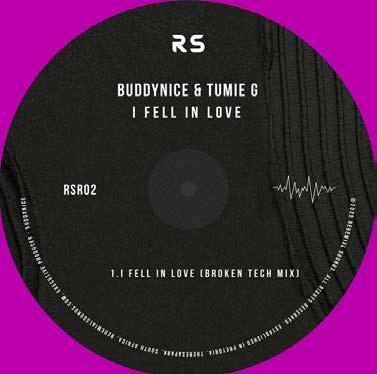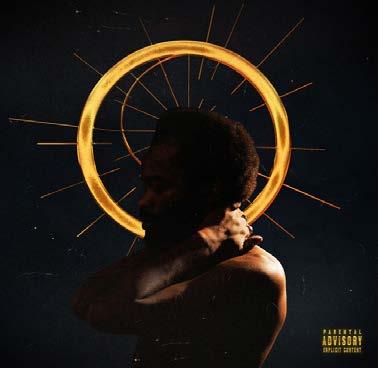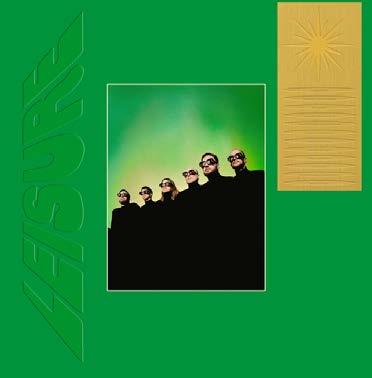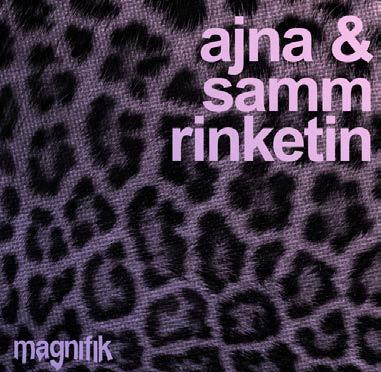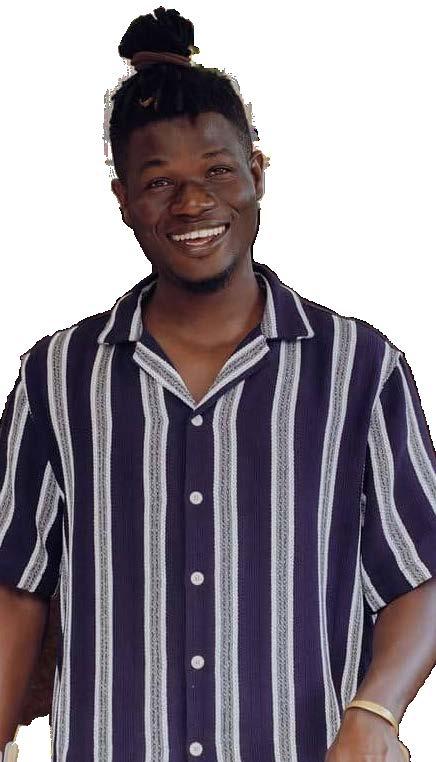


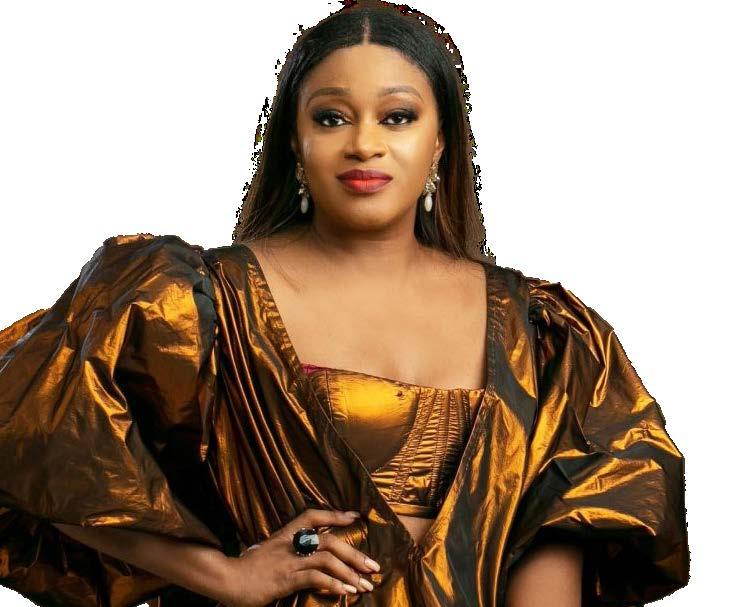
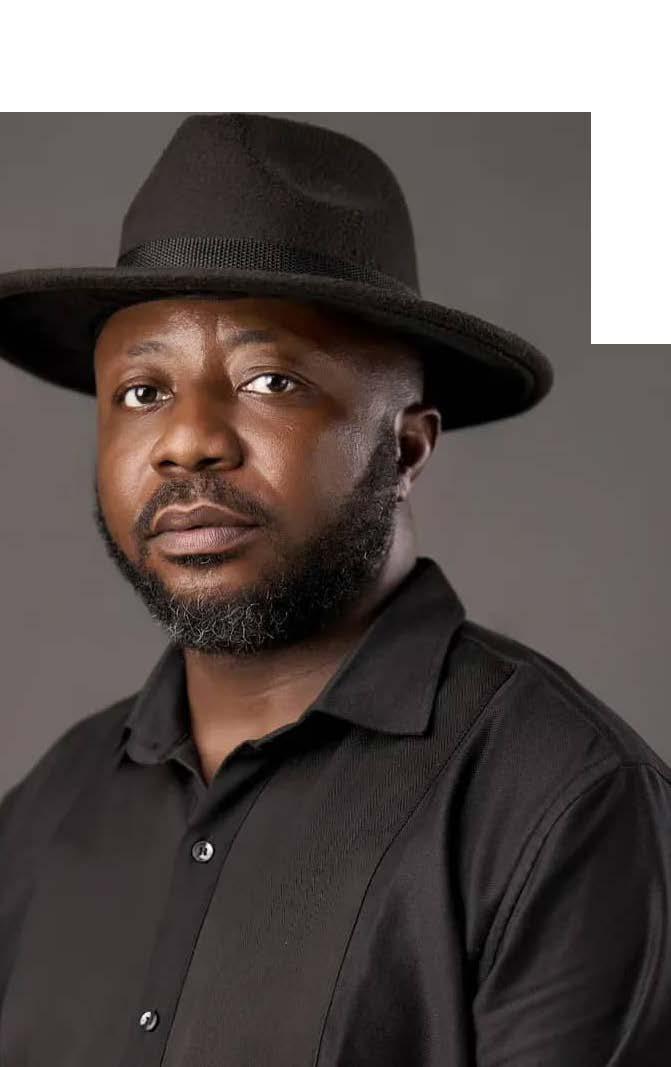
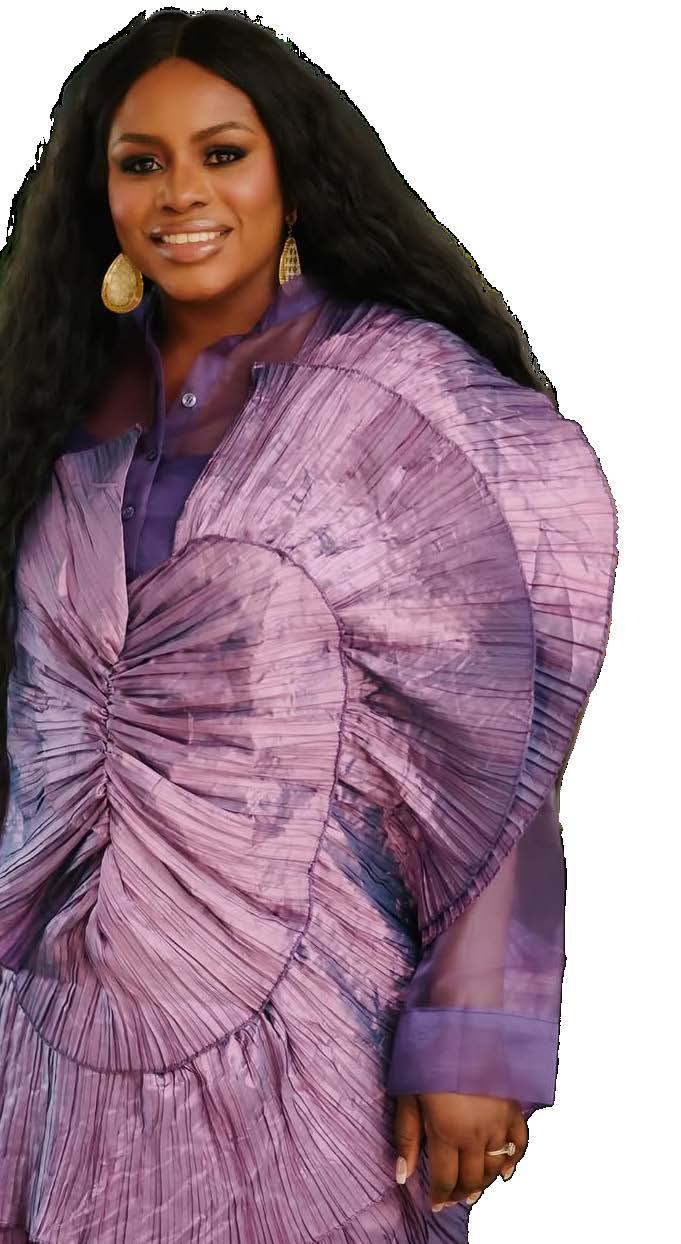
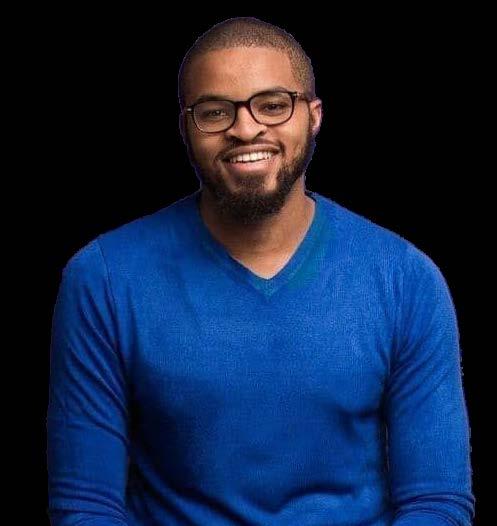

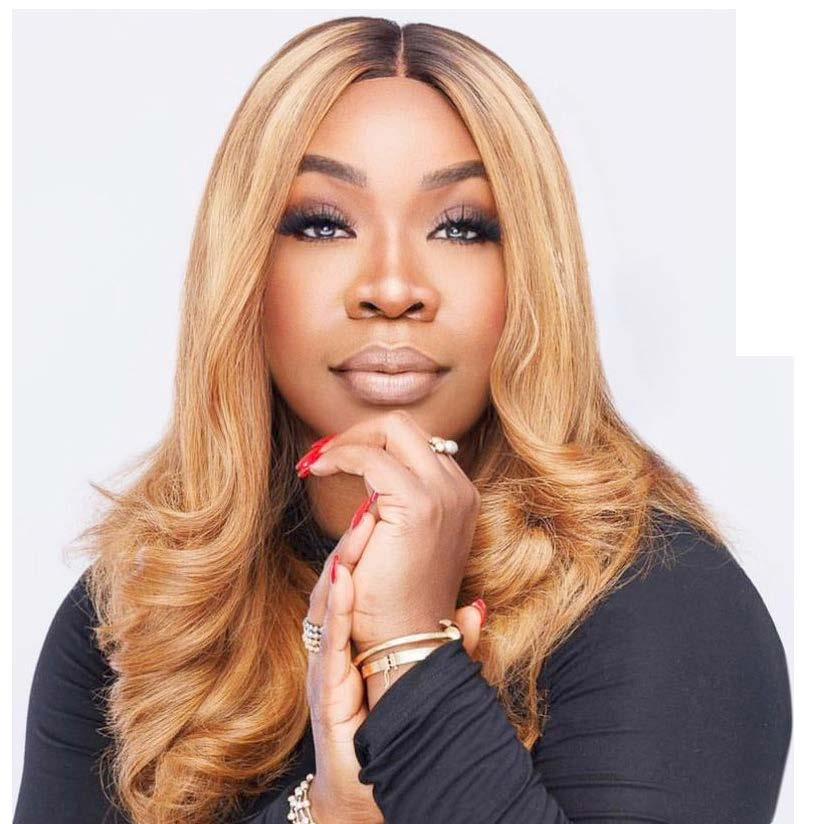
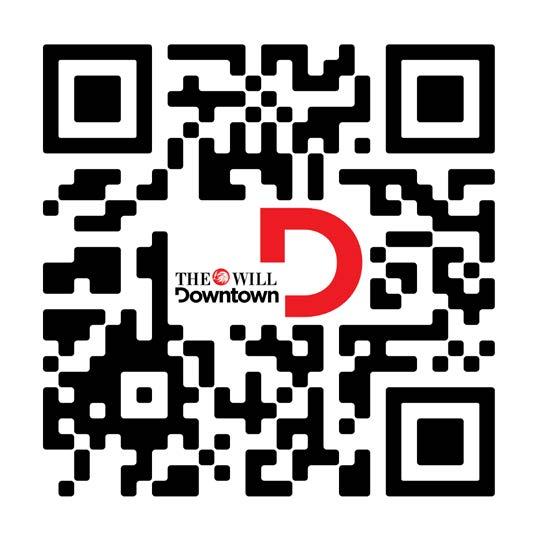
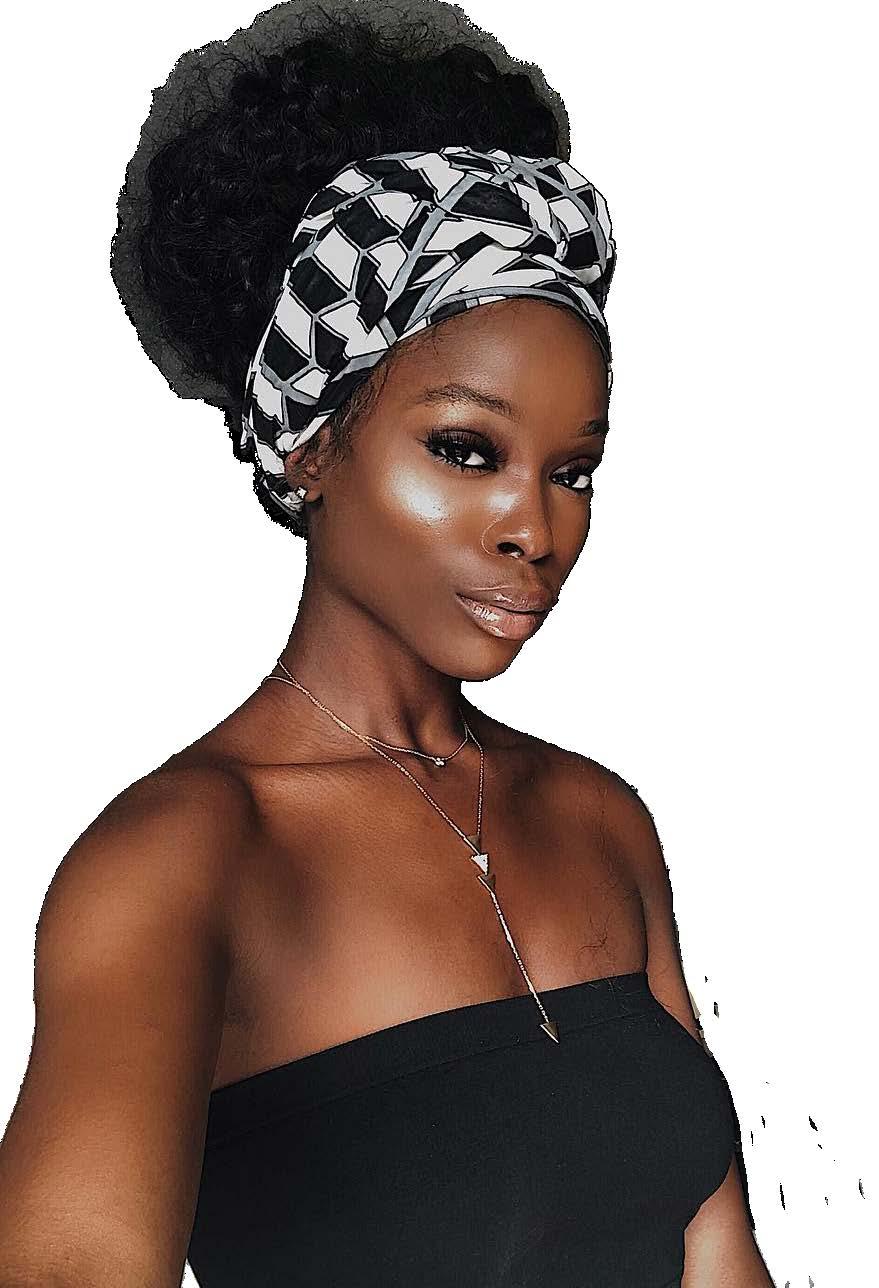
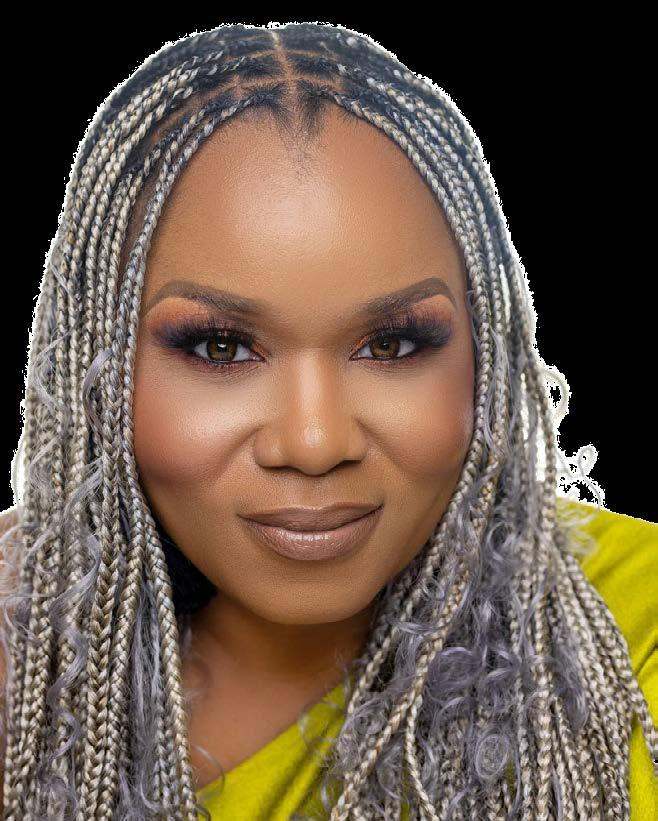

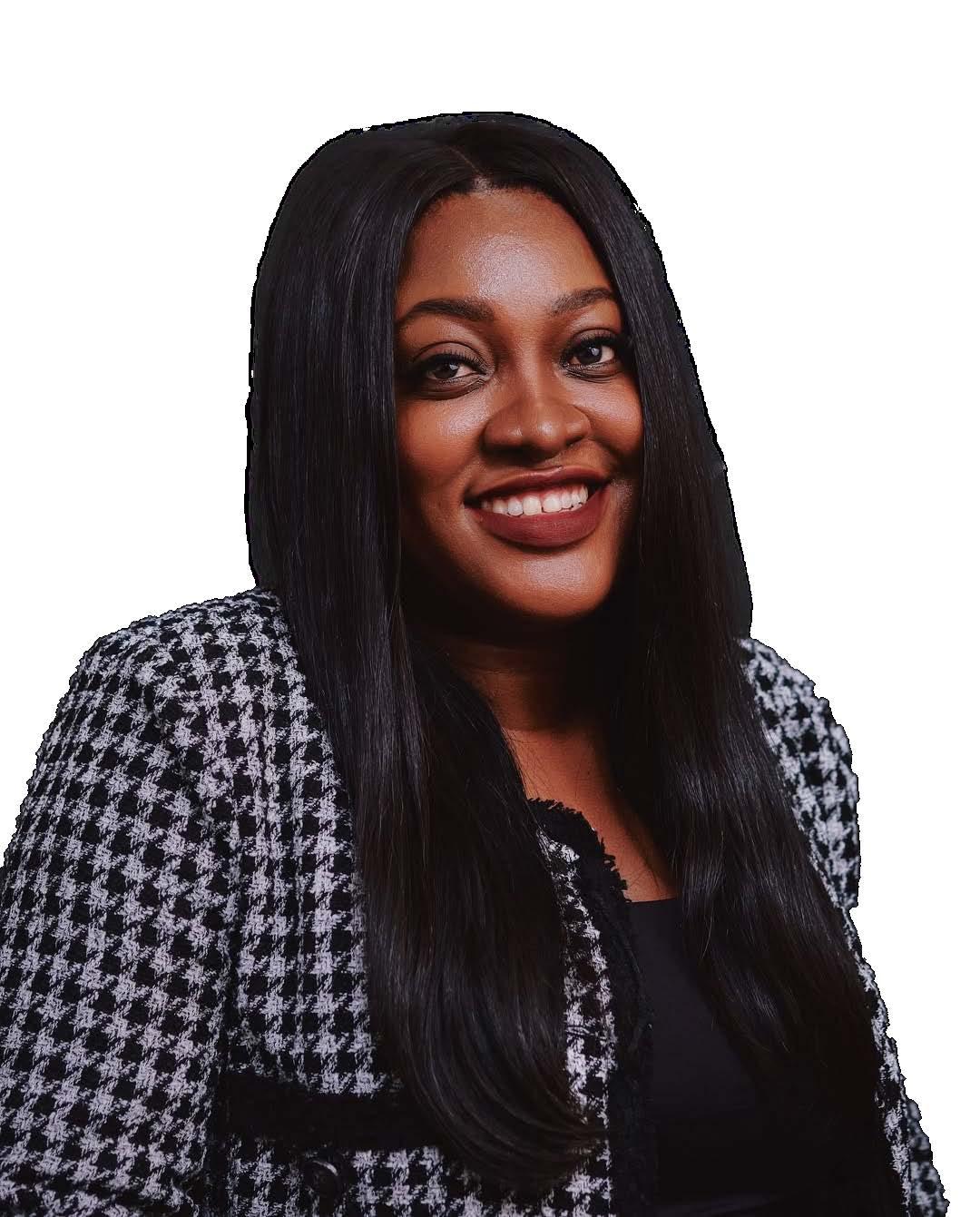
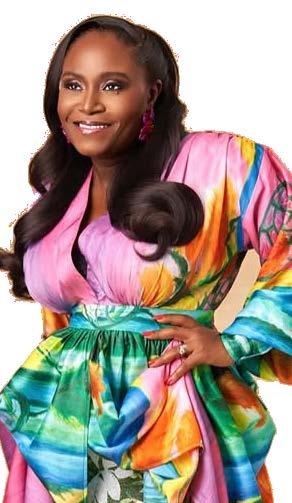
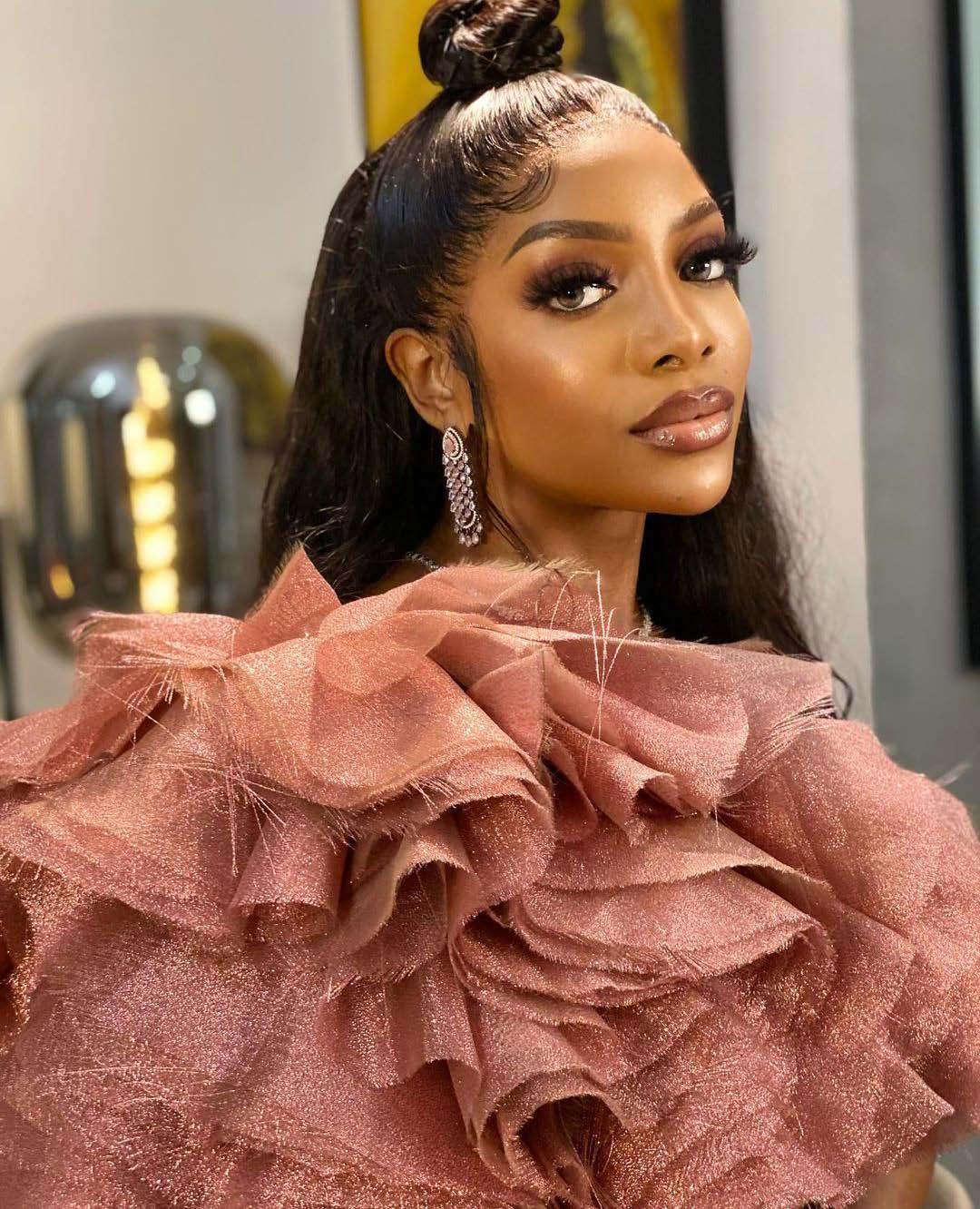
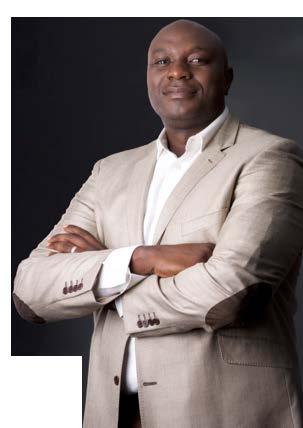
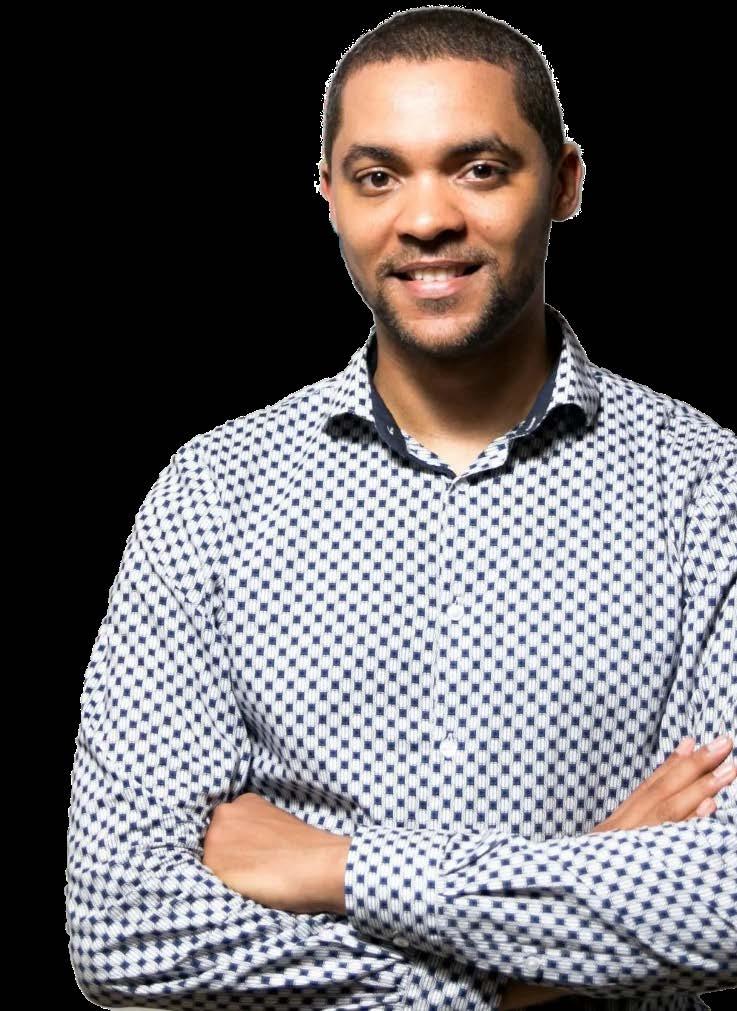



















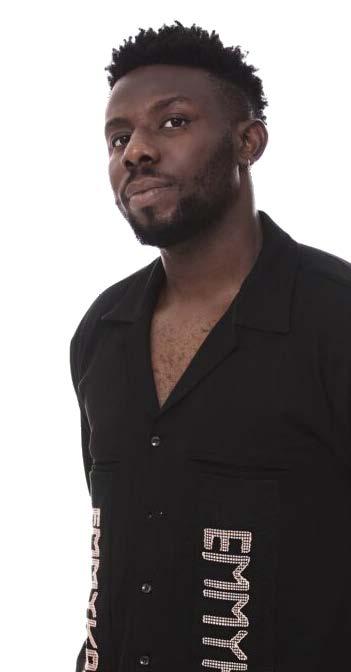



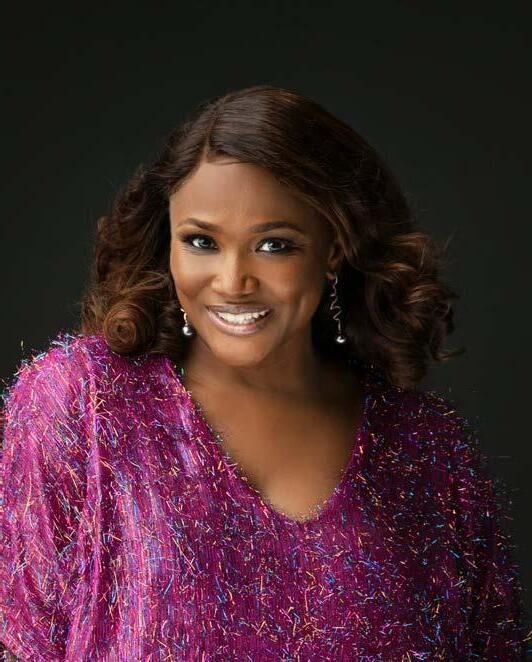

APhoto: Kola Oshalusi @insignamedia Makeup: Zaron
t the core of every successful Nigerian brand lies a story of bold visionaries who dared to imagine differently and build courageously. These are not just business owners; they are architects of identity, stewards of culture, and champions of self-made excellence. What they’ve created goes beyond profit margins; it’s legacy work rooted in passion, persistence, and a sense of pride. We pay tribute to the people in this story— the builders and brand-makers who are redefining what it means to be an entrepreneur in Nigeria. They are not waiting for global validation; they are leading with intention. As the world begins to notice and pay close attention to Nigeria, these people are proving that Nigeria’s greatest export isn’t products; it’s people.
We have compiled a list of entrepreneurs who are making a name for themselves. Read all about them on pages 8 to 11.
We often hear of antioxidants for the skin and our diet, but did you know that antioxidants can work magic on your hair? Like your skin, your hair can also become damaged by exposure to sunlight and harsh chemicals, leading to dryness, hair breakage, and thinning. This is where antioxidants come in to help fight the damage and protect the hair from harmful free radicals. Read all about the types of antioxidants that work best for your hair on page 12.
Jurassic World: Rebirth is our movie reviewer’s choice for review this week. I was looking forward to watching it, but it didn’t get a good review. I might still go and see it; we’ll see.
Our playlist features a curated collection of songs that you’ll love, so go ahead and download it.
Until next week, enjoy your read.


@onahluciaa + 2348033239132
AUSTYN OGANNAH
PUBLISHER/EDITOR-IN-CHIEF
Executive Editor: Onah Nwachukwu @onahluciaa
Writer: Johnson Chukwueke
Design & Layout: Olaniyan John ‘Blake’
Digital Media: Oladimeji Balogun
Consulting Art Director: Sunny Hughes ‘SunZA’

www.thewilldowntown.com thewilldowntown thewilldowntown


04-05 FASHION #UNSHAKABLE TRUTHS
5 Ways to Stack Bracelets Stylishly
Mid-Year Full Power Simple Steps to Get Back on Track With Your Workouts Best Antioxidants For Hair And How to Use Them

U is for Unicorn: The Rare And The Real

Boluwatife Adesina @bolugramm - Contributing Writer
Boluwatife Adesina is a media writer and the helmer of the Downtown Review page. He’s probably in a cinema near you.
Dorcas Akintoye @mila_dfa_ - Contributing Writer
Bright Decor Ideas to Lighten Up Any Space
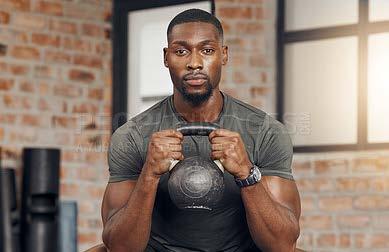









Sally Chiwuzie @unshakable.is.a.state.of.mind - Contributing Writer
Sally Chiwuzie is a non-practising barrister who owns the brand #Unshakable. She is the author of Silent Symphonies, a fictional love story, and the creator of the podcast Chronicles of #Unshakable Truths.


Dorcas Akintoye is a dedicated writer with more than 2 years prolific experience in writing articles ranging from food, entertainment, fashion and beauty. She has a National Diploma in Mass Communication from Kwara State Polytechnic, Ilorin. She loves writing, listening to music and playing scrabble. She is a highly-skilled, enthusiastic, selfmotivated professional writer. Jurassic World: Rebirth 8-11 15 16 14 REVIEW DOWNTOWN CONFIDENTIAL




A leader and more



BY DORCAS AKINTOYE
Adding a personal touch to your ensemble is easy. Wear bracelets. Combining various styles, colours, and materials in a way that expresses your mood or sense of style is possible when you stack them. It all depends on how you layer your bracelets, whether you’re going for a dramatic, edgy vibe or a simple, everyday look. Although stacking may appear simple, it requires a bit of balance and creativity to perform correctly. Here are five simple and stylish ways to stack bracelets that will have your wrist looking its best every time.
By combining materials such as leather, fabric, metal, plastic, and even shells, you can add depth and make your stack appear more thoughtful. For example, pairing a smooth gold bangle with a rough, woven bracelet and a beaded one instantly adds more dimension to your wrist. The contrast of textures draws attention and adds a stylish edge. You don’t want everything to look too perfect or the same, so let your stack show off some personality through different feels and finishes.

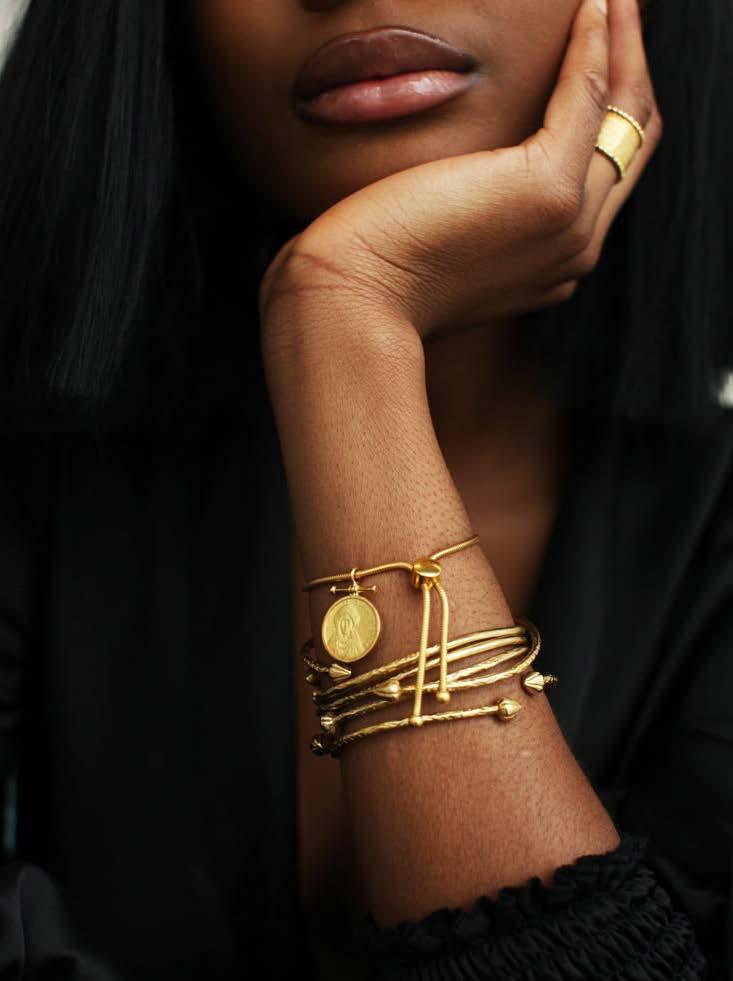
Colour is a great way to make your bracelets stand out, but it’s important to use it wisely. A splash of colour can add life to your outfit, especially if you’re wearing something simple or neutral. However, using too many colours at once can make your wrist look too busy. The key is to choose a colour theme and stick with it. For example, you can go for soft pastels, bold neon shades, or warm earth tones. Then, mix in one or two neutral or metallic pieces, like gold or black, to tone it down. This way, you’re still playful with your colours, but everything works together nicely.
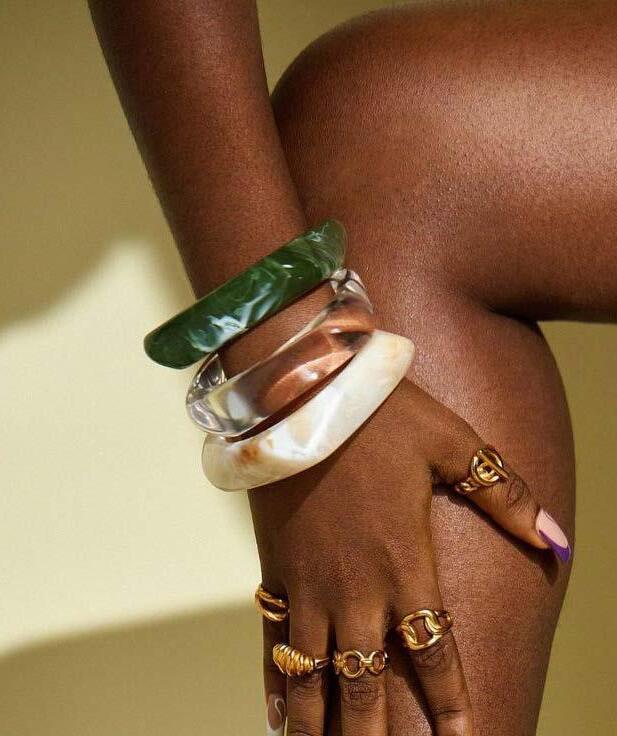
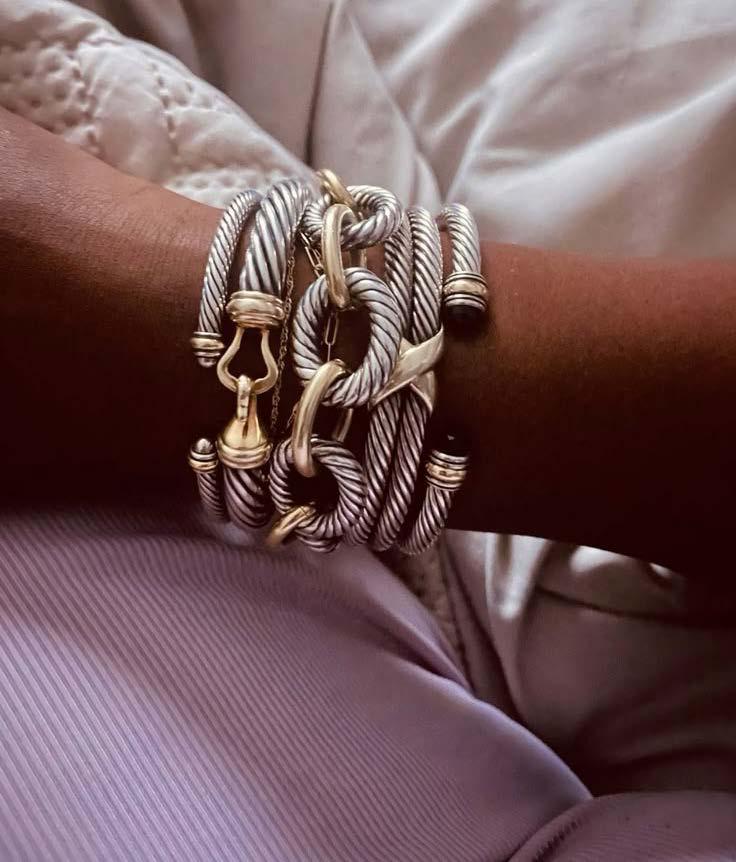
There is always that one piece that stands out and attracts attention in every great bracelet stack. It could be a bracelet with charms, a chunky bangle, or even a smartwatch with a stylish strap. After selecting your statement piece, choose more understated, simpler bracelets to build the remainder of your stack around it. This helps create a focal point so the eye naturally knows where to look. Your entire ensemble may seem overly bulky if all of your bracelets are loud and vying for attention. However, your stack feels more put together and stylish with only one standout piece.
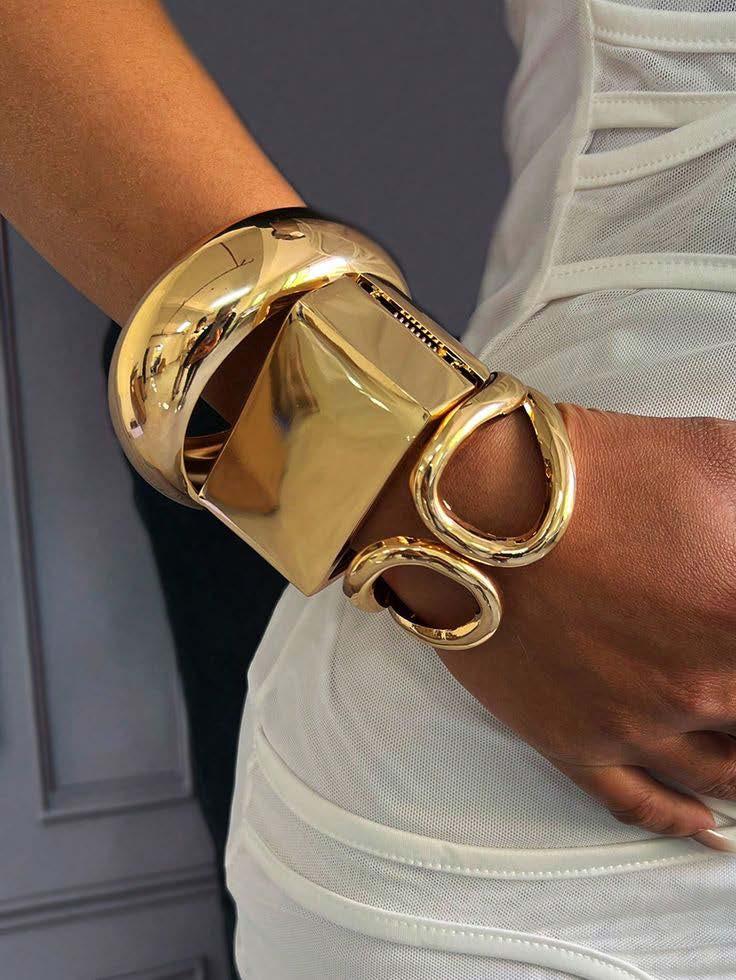
One mistake people often make when stacking bracelets is using the same size repeatedly. It can make your stack look flat or boring. To fix this, try using bracelets of different thicknesses. This change in size adds balance and makes the stack look fuller and more interesting. Adding variety helps your wrist stack stand out in a stylish, effortless way.
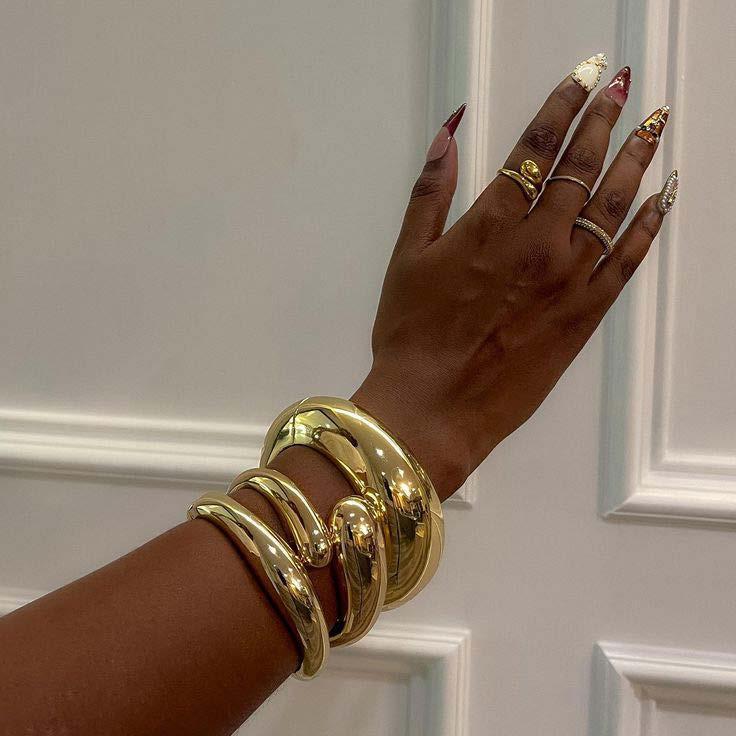
You might be surprised to learn that odd numbers tend to appear better when stacking bracelets. It’s usually more noticeable and natural to wear three or five bracelets rather than just two or four. Balance brought about by odd numbers feels more relaxed and less forced.
Stacking bracelets is an easy way to take your outfit from plain to stylish without doing too much. The trick is to mix textures, balance colours, add one standout piece, play with different sizes, and use odd numbers. These tips help you create a stack that looks intentional, stylish, and true to your style.



SALLY CHIWUZIE
@unshakable.is.a.state.of.mind
Not all unicorns wear glitter or gallop across fantasy fields. Some ride the bus to work with tired eyes and hopeful hearts. Some sit behind café counters or command boardrooms. Some are wheeling themselves toward a new beginning after years of stillness. Unicorns are not mythical. They are misunderstood. We often think rarity must mean unreachable, but the truth is that unicorns walk among us. Sometimes, they are us.
Podcasting has become my passport into their world — a portal into stories of quiet strength and courageous transition. It’s not always about the headlines. Sometimes, it’s the deep breath before telling the truth. Sometimes, it’s the trembling smile after standing again.
Take Seyi, confined to a wheelchair for seven years, yet still dancing through life with rhythm and purpose. One day, he stood again — physically, spiritually. That’s a unicorn.
Then there’s Martin, single father of two grown children, who built ventures from the dust of rock bottom. They say it’s a good place to start — he proved it’s also a good place to rise. That’s a unicorn.
NG is a builder — of homes, of legacy. She navigated a midlife shift with fierce grace. It’s only a matter of time before Forbes catches up.
That’s a unicorn.
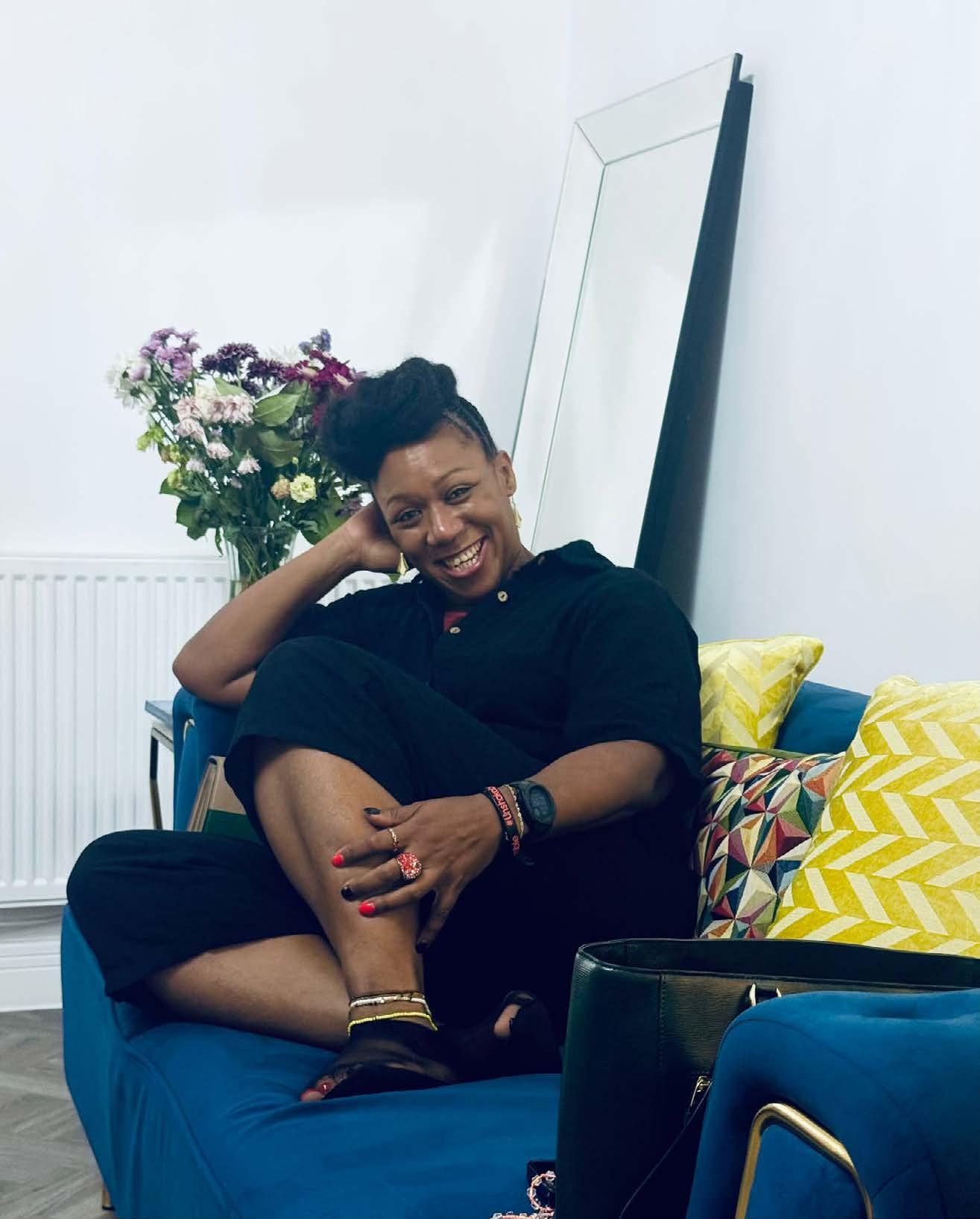
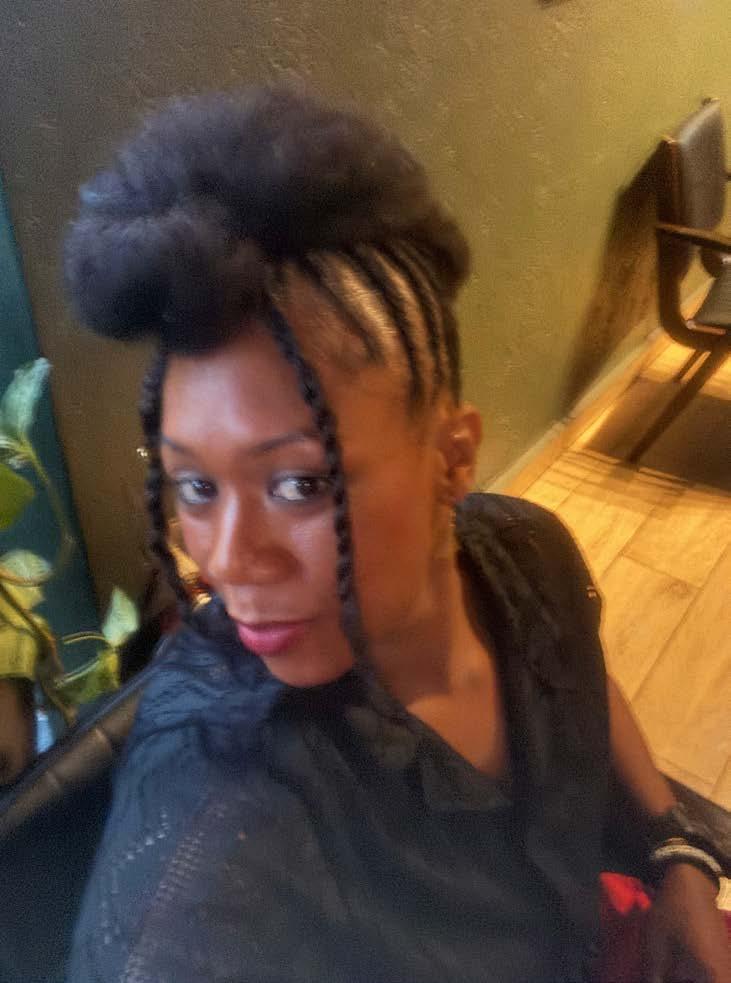
Jax, Amaka J, Selene — steady hands guiding legal paths. Nicola, standing beside them, helping others re-find themselves. She reminds people they are not broken, just between chapters. That’s unicorn energy.
Olu, carrying Aneden Gives like a heartbeat.
Service, compassion, presence — no applause needed. Her legacy lives in every life touched.
Nkaepe, lawyer by training, fashion by fire. She walks into a room and elevates the frequency.
Bels and Ogee and Diseye, climbing the corporate ladder with grit and grace in rooms not built for them. They rise quietly — consistently. That’s unicorn precision.
Louise, Mary, Toonj and Wilson, running marathons in their 50s.
Not chasing medals — but showing what endurance really means. Their stride says: “We’re not done yet.”
And those who feed us, literally and spiritually — Nky of Pitanga, serving nostalgia with every plate.
Enk of Twirling Spoon, where love and batter rise together.
Tiyan of Tarragon, turning hospitality into heritage. They’re not just feeding bellies. They’re feeding legacy.
Then — the givers.
Fueksy, Mama Zzzs, YV and MM — quiet supporters, givers of grace and good advice. The kind of friends you don’t need to call twice because they already showed up. Just like the two Lucy’s.
And still, some unicorns sit in the shadows. The wind beneath the wings. They don’t want applause — but they deserve it. They text when your world goes quiet. They celebrate your light while hiding their own. Some of the unicorns I know would be furious to be named. And honestly? That in itself is heroism, a humility that makes their light even brighter. These are just a few unicorns I have had the privilege to know. But my network is vast. If I tried to name them all, we would need a full A–Z series to begin. I simply wrote from the heart, letting the theme guide the names that floated forward.
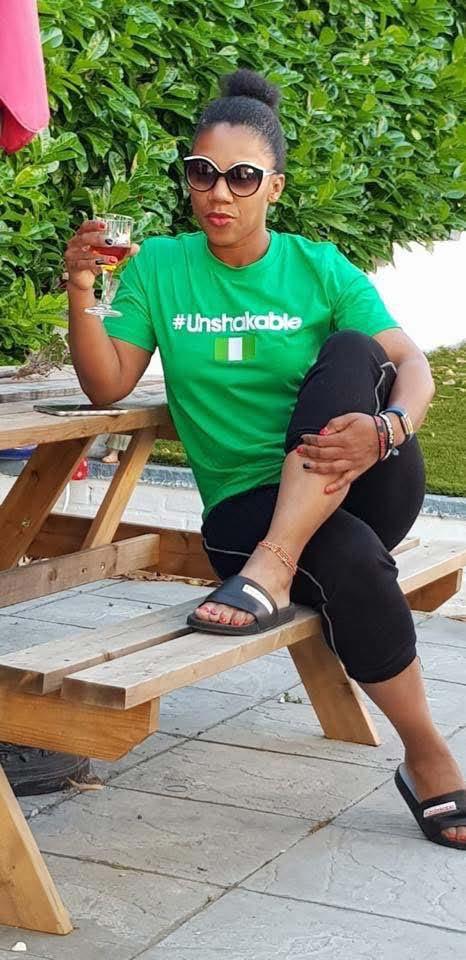
Osita and Mal, silver-crowned souls who prove that age and style are not opposites. They’re art. Obi and Dee, soul-liberated travellers. They don’t just explore; they expand the atmosphere.
Some people don’t follow the map — they are the map.
This isn’t about favouritism. It’s about inspiration. Some of my unicorn friends are in transition — businesses changing shape, eras ending, bodies and identities being quietly redefined. Others are walking through silence, trying to remember who they are — and why they still matter. So this piece is what it was always meant to be: an honouring. Because while selflove is the foundation of being #Unshakable, the overarching love — for others, for life, for meaning — deserves to be written into the light. Here’s to embracing your inner unicorn. To daring to be rare. To loving yourself fiercely, and others fully. To being the unicorn someone else was praying to meet.
And if no one has told you lately… I see you. Now tell me — what makes you rare? Tell me about your inner unicorn. ‘See’ you next week.
Aquiet revolution is happening across Nigeria, one not driven by slogans or speeches but by vision, grit, and the unwavering belief that greatness can be homegrown. From industrial centres to creative hubs, a new era of Nigerian entrepreneurship is taking root, bold, resilient, and globally ambitious.
This isn’t just about survival in a tough economy. It’s about reinvention. Nigerian businesses are no longer content with merely existing; they are expanding, innovating, and competing on the
BY JOHNSON CHUKWUEKE
world stage. Whether it’s in hospitality or the digital space, these companies are building with long-term impact in mind, providing jobs, driving local value chains, and changing how we define African excellence.
These ventures are built by Nigerians who understand the nuances of the market and the needs of the people. They are redefining what it means to be Made in Nigeria, transforming it from a label into a badge of innovation, quality, and pride.
This cover story is a celebration of that evolution.
Of the builders, the thinkers, the creators, and the risk-takers. Of those who are crafting futures rooted in possibility, not permission. It’s about the people who, every day, prove that Nigeria doesn’t need to wait to be discovered; it’s already building its legacy from the ground up.
Welcome to a new chapter of Nigerian enterprise: confident, selfdefined, and unmistakably worldclass.

When people speak of Nigerian tech pioneers, Mark Essien is a name that commands respect. As the founder of Hotels.Ng, Nigeria’s leading online hotel booking platform, Essien revolutionised the travel industry by providing local and international travellers with easy access to accommodations across Africa. But long before tech became trendy in Nigeria, Essien was already building and betting on local potential. Interestingly, while Wakanow is often seen as a giant in the online travel space, it was Hotels.ng, under Mark Essien’s leadership, that focused on curating African hotel listings and booking infrastructure from the ground up. His work created the blueprint for trust and convenience in an industry previously marred by uncertainty and offline hassles. A trained software engineer, Essien returned to Nigeria from Germany with not just technical skills but a clear mission: to build for Africa, in Africa. Through Hotels.ng and later HNG Internship (a remote internship program for aspiring developers), he has empowered countless young Nigerians to find footing in tech. Mark Essien represents a new wave of builders, those not just looking to be successful but to create systems that scale, solve real problems, and spotlight Africa’s tech potential.
When you think of luxury events and flawless experiences in Nigeria, one name comes to mind: Funke BucknorObruthe. As the founder and creative force behind Zapphaire Events, Funke didn’t just enter the events industry—she created a blueprint for what professional event planning could be in Nigeria. Since launching Zapphaire in 2003, she has transformed it into one of Africa’s most respected event companies, producing everything from high-profile weddings to landmark corporate activations.
With a background in law and a natural flair for
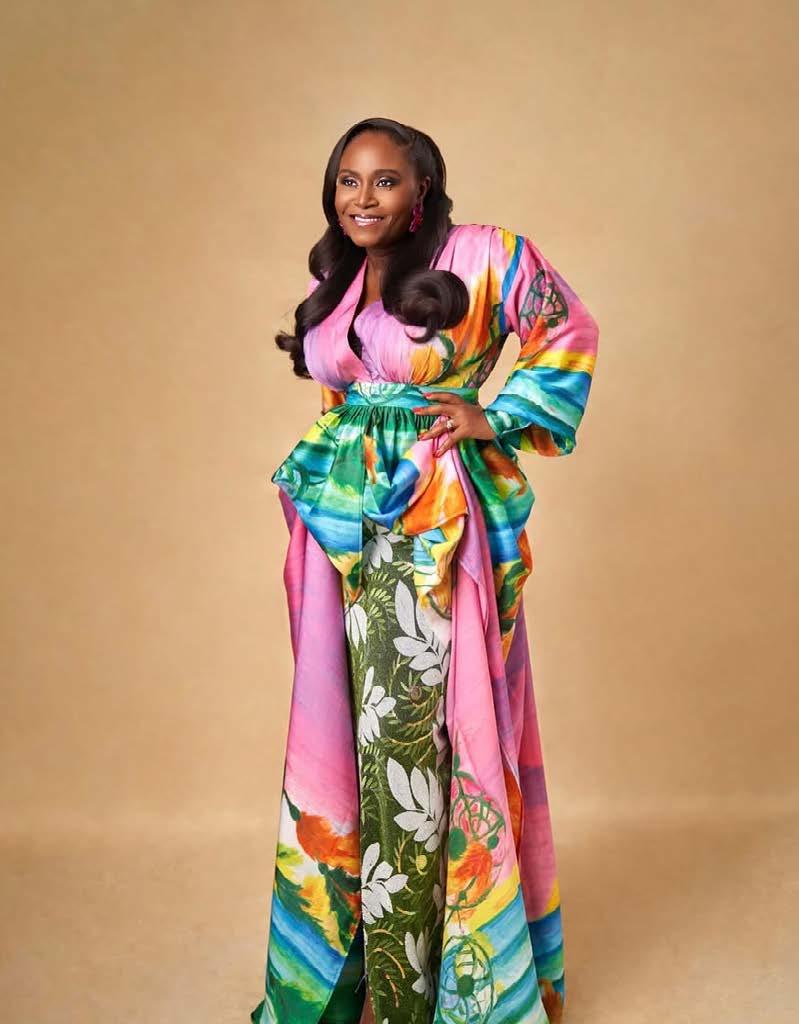
creativity, Funke built Zapphaire into a full-scale experience brand. Her dedication to excellence and detail has earned her both local and international accolades, including a place on the BBC’s 100 Most Inspirational Women list in 2016. But her legacy isn’t just in beautifully executed events—it’s also in people. Through the Zapphaire Training Academy, she has mentored hundreds of event professionals, shaping an entire industry from the ground up. Her influence goes beyond décor and logistics—she represents innovation, mentorship, and Nigerian excellence on a global stage. In the growing economy of experience, Funke Bucknor-Obruthe is proof that building unforgettable moments can become a worldclass enterprise.
In the world of luxury PR and brand communications, Dr Bukky George-Taylor is a standout force. As the Founder and CEO of Robert Taylor Media, she has carved a niche for herself as the go-to strategist for companies looking to tell powerful, premium, and purposeful African stories. Over nearly two decades, Bukky has worked with high-profile brands like Disney, MAC Cosmetics, Clinique, and Johnnie Walker, positioning them to thrive in Africa’s dynamic consumer landscape. But Bukky is more than a publicist; she’s a brand architect. Her impact extends into tech as co-founder of CRAWL Africa, a lifestyle and events discovery app that’s reshaping how Africans experience culture and tourism. She’s also the author of Born to Stand Out, a guide to personal branding that reflects her mission to help young professionals find their voice.
In 2024, she was awarded an Honorary Doctorate in Communications and Strategy, solidifying her legacy in Africa’s media and branding space. Through her mentorship, public speaking, and thought leadership, Bukky champions innovation and excellence, especially among women.
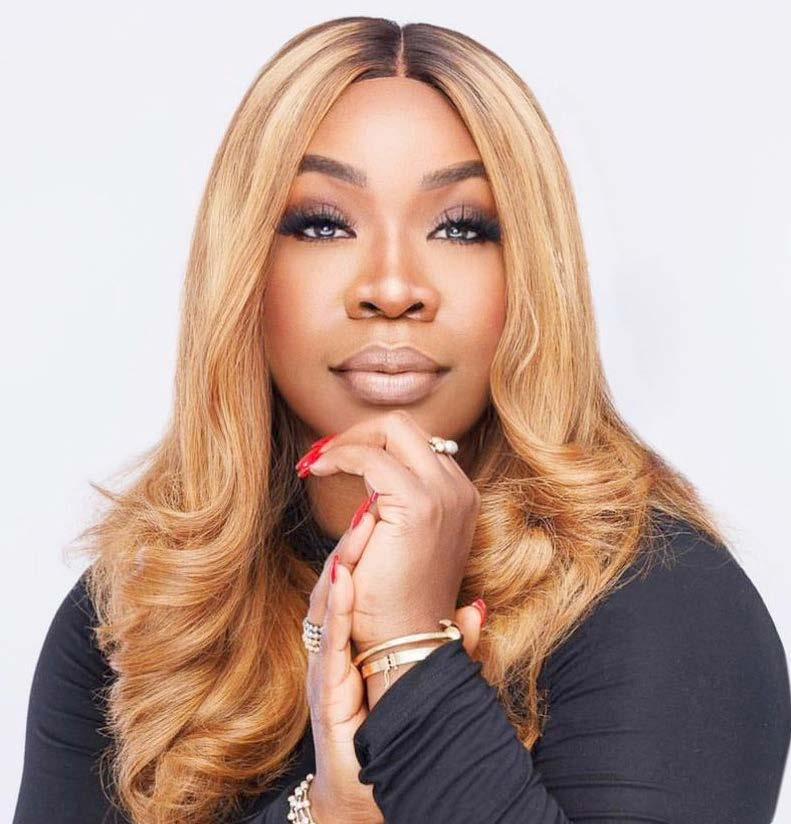
With global affiliations and a heart for storytelling, Bukky GeorgeTaylor is a Made in Nigeria powerhouse whose influence is as polished as it is profound.
Dr Yetty Ogunnubi has spent the past two decades defining what strategic, creative, and impactful public relations should look like in Nigeria. As the Founder and CEO of The YD Company, she leads one of the country’s most dynamic communications firms, offering PR, brand strategy, media relations, and event support across various industries, including fashion, technology, government, and entrepreneurship.
Her career began in the UK, where she worked in fashion

journalism and styling before transitioning into brand communications. In 2016, she launched her agency in Nigeria with a mission to elevate local voices and brands through storytelling that resonates globally. Since then, she has worked with a diverse range of clients, crafting narratives that foster both visibility and trust. Beyond her agency work, Dr. Ogunnubi is a fierce advocate for youth empowerment and women in business. She leads The YD Foundation, sits on the G100 network as Nigeria’s Chair for Brand Creation, and mentors young professionals through programs like the U.S. AWE initiative. Her accolades—including a recent Honorary Doctorate in Brand Strategy— reflect a career built on consistency, innovation, and heart. Dr. Yetty Ogunnubi is not just a brand expert; she is a builder of legacy.
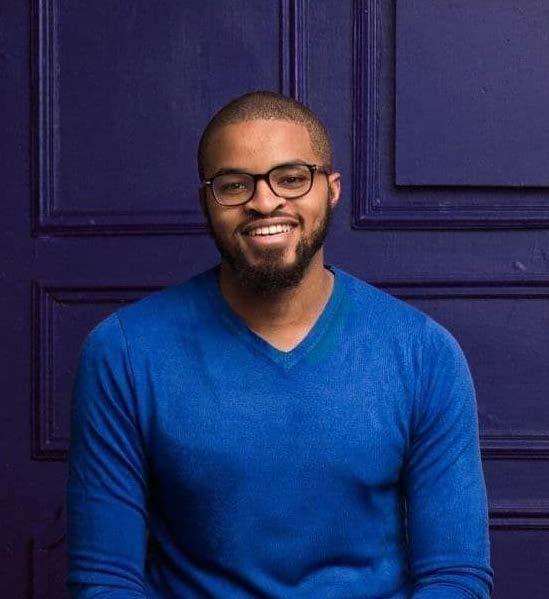
Obinna Okwodu is the founder and CEO of Fibre, a trailblazing realestate tech startup that revolutionised housing in Lagos. Armed with dual degrees in Civil Engineering and Management Science from MIT, and early career experience at Morgan Stanley in real estate finance, Okwodu returned to Lagos in 2015 to tackle a pervasive challenge: mandatory 12–24 months’ rent upfront, a barrier for many young professionals. Launched in 2016 alongside co-founders Demi Ademuson and Olatunde Garuba, Fibre offers flexible monthly rent payment plans, guaranteeing landlords steady revenue while easing tenants’ cashflow burden. After proving the model with an initial 12-unit pilot, the startup earned trust from landlords and rapidly scaled across Lagos. Under Okwodu’s leadership, Fibre earned acclaim, including inclusion among Forbes’ 30 Most Promising Young Entrepreneurs in Africa (2018). Today, the platform boasts 99% occupancy, addressing core issues in Nigeria’s rental ecosystem. Okwodu’s vision extends beyond rent. Fibre recently launched Secure, a residential real estate investment product, with the ambition to scale across Africa once the model is perfected in Nigeria. Combining engineering precision, financial acumen, and empathetic design, Obinna Okwodu is transforming how Nigerians live and pay for their homes.
Ewaen Sorae launched E’sorae Luxury in 2010 after returning from the UK, transforming a personal insight into Africa’s premier homeware brand. What started with premium towels and bathrobes is today a comprehensive range, including duvets, mattresses, luxury bedding, aromatherapy, and hospitality uniforms—from modest beginnings to 80+ SKUs and the trust of over 350 hotels across Nigeria.
Driven by quality and wellness, Sorae built local manufacturing at Lekki, scaling production to 800 duvets daily and working toward 2,000 mattresses per day. During COVID-19, he pivoted to diversify into hospitality garments, table linens, and hot-plate carriers—

now over 63% locally sourced.
Raised in Benin City, Ewaen honed his skills working in his father’s civilengineering business and then in the UK’s Providence Financial Group, managing credit facilities above £1 million. Today, E’sorae is expanding beyond Lagos to cities like Benin City and Accra, with a vision to become “the White Company of Africa,” blending luxury and wellness.
Under his leadership, E’sorae isn’t only raising standards in African hospitality—it’s redefining them, proving that quality, locally made home essentials can thrive on both continental and global stages.
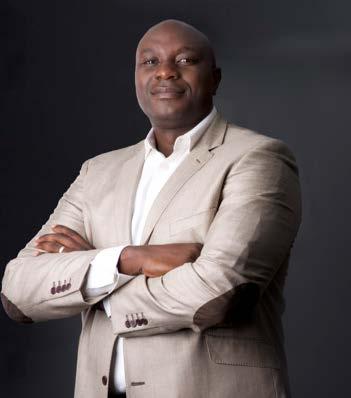
Obinna Ekezie, a former NBA player turned tech entrepreneur, is the visionary behind Wakanow, Nigeria’s foremost online travel platform. After a successful basketball career in the United States with teams like the Washington Wizards and the LA Clippers, Ekezie returned to Nigeria determined to tackle a major challenge in the African travel space: access, transparency, and ease of booking.
Founded in 2008, Wakanow became a game-changer by offering Nigerians a seamless way to book flights, hotels, and holiday packages online at a time when such services were fragmented and heavily reliant on offline agents. Under Ekezie’s leadership, the company quickly became one of Africa’s leading travel platforms, with operations extending to Ghana, Kenya, the UK, and the UAE. Ekezie combined global business insight with a deep understanding of local consumer needs, building a brand that revolutionised travel for millions of Africans. His vision helped democratise travel and made tourism more accessible to the middle class.
Today, Wakanow stands as a proudly Nigerian innovation—built locally, scaled internationally. Through it, Obinna Ekezie has not only created a tech success story but also proven that world-class businesses can grow from African soil with the right blend of vision, strategy, and passion.
Tope Adekoya is the Cofounder and CEO of 7Fifteen Capital, a cutting-edge real estate development firm redefining luxury residential and hospitality spaces in Nigeria. With dual academic qualifications—an MA in Advertising and Marketing from Coventry University and an MBA from Oxford’s Said Business School, along with a BSc in Economics from Covenant UniversityTope brings a powerful combination of business acumen and strategic vision. Before venturing into real estate, he garnered diverse professional experience. He served as Managing Partner at Bilateral Data and Communications (BiComms), led corporate communications at GTBank, drove SME growth through SME100 Nigeria, and co-led Verdant Homes, a property development brand. In 2020, he assumed the role of Director, Nigeria, at Elephant Healthcare, signalling his commitment to social-impact ventures.
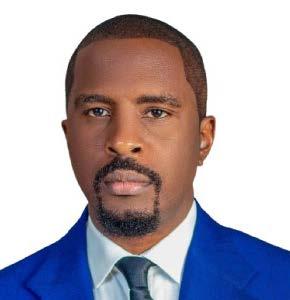
Under his leadership, 7Fifteen has launched signature projects like the Lakeside Estate in Abuja, showcasing modern architecture, premium finishes, and prime location living. He also oversaw the launch of Husk Collections, a boutique hospitality arm offering serviced apartments with relaxed luxury. Tope’s multidisciplinary expertise across real estate, marketing, fintech, and healthtech reflects a holistic approach to development.
Through a lens of quality, reliability, and innovation, Tope Adekoya is crafting more than spaces—he’s establishing lifestyle benchmarks that reflect a confident, modern Nigeria.
Kehinde Smith and her twin sister, Taiwo, have made a remarkable impact on Lagos’ fine-dining scene through their trio of upscale venues: Maple, Cafeteria, and their flagship, The Smiths. Since launching The Smiths in 2023 on Victoria Island, the sisters have redefined luxury dining with a unique fusion of global flavors, Asian, Mediterranean, and Latin American, in a refined yet inviting atmosphere.
As Co-founders, Kehinde (co-owner) and Taiwo (executive chef) bring elegance and culinary expertise to every plate. Their establishments emphasise attention to detail, cultural fusion, and the joy of savouring moments, traits that have earned The Smiths a stellar 5.0 rating across review platforms.
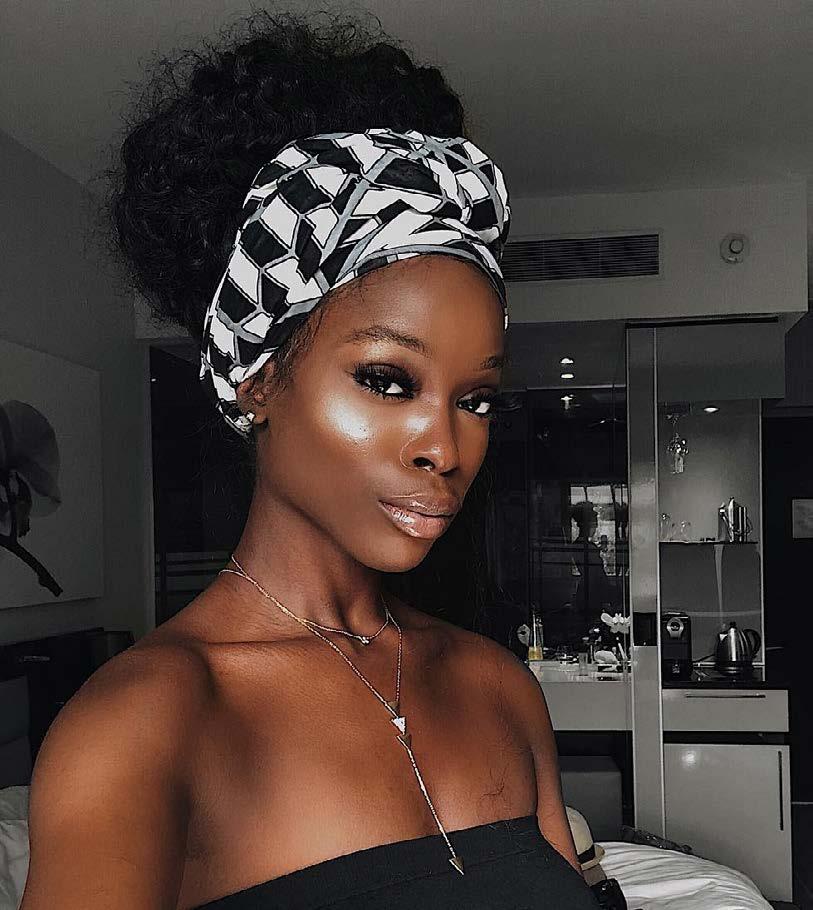
The Smiths stands apart with its live acoustic jazz, cocktail-forward philosophy, and thoughtful service. Its reserved “quiet-corner” vibe in bustling VI offers a polished yet cool experience, perfect for business lunches, date nights, or intimate gatherings.
Through Maple, Cafeteria, and The Smiths, the Smith twins are not just serving meals—they’re curating lifestyle experiences that signal a new era of Lagos hospitality. Their work exemplifies how Made in Nigeria brands can seamlessly blend creativity, culture, and premium positioning, from the kitchen to the cocktail lounge.
Nasir Yammama is the founder of Verdant Agri-Tech, a social enterprise that uses simple mobile technology to uplift rural farmers across Nigeria. Born in 1990 in Katsina State and raised on his father’s farm, Yammama deeply understands agricultural challenges. He holds a Master’s degree in Creative Technology from Middlesex University, UK, and has represented Nigeria in global tech competitions from a young age.

Founded in 2015, Verdant Agri-Tech started with just 50 farmers in Katsina but scaled rapidly to serve over 25,000 farmers across northern Nigeria. Its mobile-based platform delivers weather forecasts, market pricing, crop advice, and access to credit—empowering farmers to increase yields, manage resources, and improve incomes. Recognised by Forbes Africa’s 2018 “30 Most Promising Young Entrepreneurs,” Yammama has since been appointed Senior Special Assistant on Innovation to Vice President Kashim Shettima, cementing his role as a key voice in Nigeria’s national tech strategy.
Driven by empathy and innovation, Nasir Yammama represents a new generation of Nigerian changemakers, building scalable solutions that transform lives and agricultural systems across Africa.
Elizabeth “Liz” Osho is a distinguished PR strategist, author, podcast host, and the founder of So.Me Solutions Group, a communications agency with bases in Lagos and Washington, D.C. After launching her career as online manager at Genevieve Magazine, she founded So.Me Solutions in 2016 and quickly became the go-to partner for brands like Netflix, Disney, Marvel Studios, Unilever, Lancôme, Maggi, and South African Tourism.
In June 2024, Liz released her Amazonbestselling memoir, Who Do You Think You Are?, publicly exploring childhood trauma, infertility,
marriage, and healing through vulnerability. She followed it with a podcast of the same name produced by Pulse Nigeria, providing a space for open conversation and emotional empowerment. She’s also recognised by CNN as a leading woman in digital media and has received acclaim from Leading Ladies Africa and The Guardian’s “100 Most Inspiring Women” list.
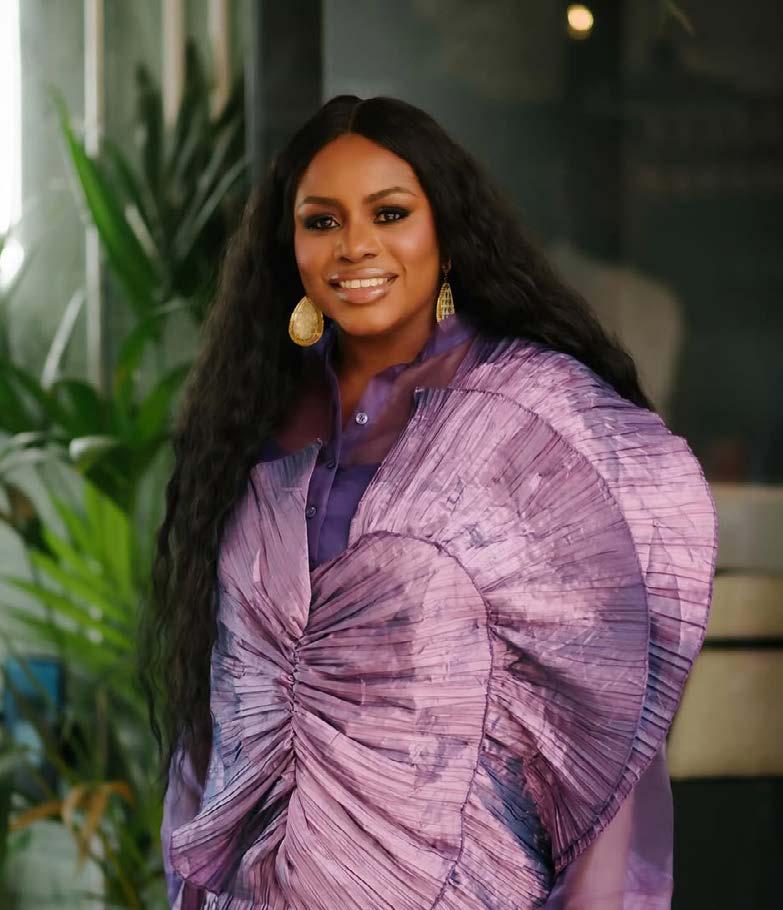
Liz Osho doesn’t just manage reputations, she invests in resilience. Through storytelling, she helps brands and individuals alike speak with authenticity, clarity, and heart. Her blend of global experience and personal transparency makes her a powerful example of what it means to lead courageously and compassionately in today’s Nigerian creative economy.
Kola Oshalusi is a pioneering Nigerian photographer, visual storyteller, and Creative Director at Insigna Media, based in Lagos. Transitioning from a medical and computing background in 2006, he followed his passion into fulltime photography, capturing everything from weddings and red carpets to architecture, fashion, and lifestyle across Nigeria and international assignments.
In 2019, he launched the Business of Photography Conference (BOP), now West Africa’s largest annual photography gathering. Through BOP and year-round “cottage” workshops, he addresses both creative and business skills, empowering 30,000+ attendees since inception.

In 2024, he focused the theme on “Culture Exchange – The Art of Business,” urging creatives to monetise Nigeria’s soft cultural power. As a thought leader, he champions continuous learning, resilience, and team collaboration—viewing challenges as opportunities to evolve. Driven by a vision to professionalise photography in Africa, Kola is transforming individual practice into a thriving, economically sustainable creative ecosystem, making a case that capturing moments can also build industries.
Emmanuel Oyeleke is one of Nigeria’s most celebrated visual artists and storytellers. As Creative Director at EOP Studios and a Canon Ambassador, he has built a career driven by a love for beauty, culture, and visual narratives that resonate deeply with audiences. His shift from a tech-savvy computer programmer to full-time photography demonstrates a dedication born from passion, leading him to win awards like the Future Awards Photography Prize (2018) and *ASFA Africa Fashion Photographer of the Year (2018)*.
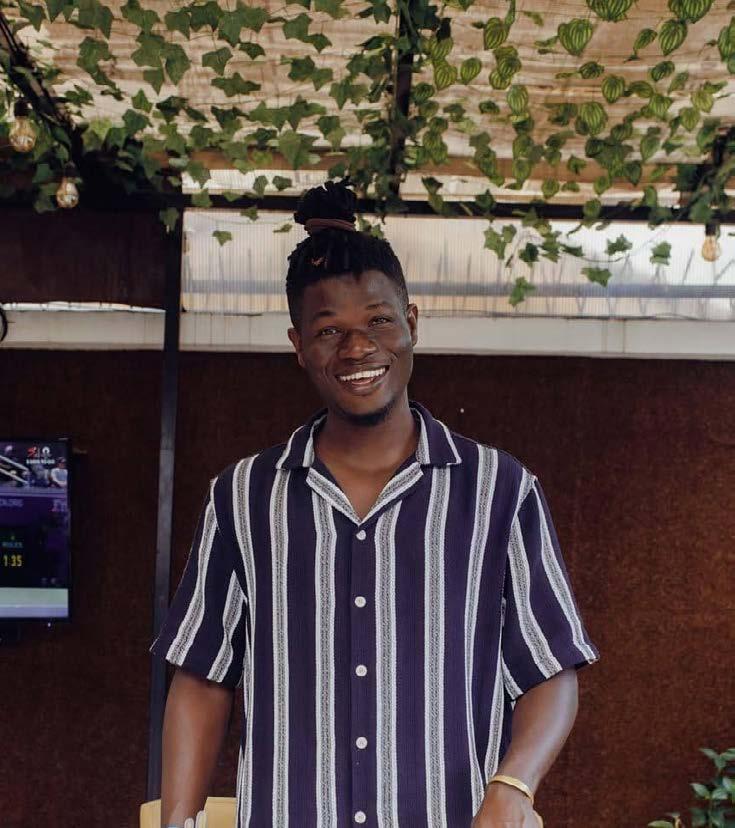
With an expansive portfolio that includes campaigns for CocaCola, Zaron, GTBank, Samsung, Unilever, and UNICEF, Emmanuel has locked in his reputation across fashion, lifestyle, and corporate brands. His artistic expression extends beyond commercial work; his solo exhibition, “The Huemanist,” at Terra Kulture explored narratives of human resilience, with proceeds supporting the Women at Risk International Foundation (WARIF). In 2019, he founded Zen Studios
in Lagos, a multidisciplinary creative hub and workspace that supports photographers, videographers, and artists in realising large-scale productions. Emmanuel is also the driving force behind the Zen Archery Club, promoting archery as a sport and a personal development tool, having even earned medals for Nigeria at African championships.
Blending cultural insight with creative excellence, Emmanuel Oyeleke is not just documenting Nigeria; he’s cultivating its creative future.
At the intersection of tradition, craftsmanship, and modern design stands Emmy Kasbit, the luxury fashion label founded by Emmanuel Okoro in 2014. More than just a brand, Emmy Kasbit represents a movement, one that honours Nigeria’s rich textile heritage while pushing the boundaries of contemporary African fashion.
Rooted in Akwete cloth, a traditional Igbo handwoven textile made by women, the brand reimagines indigenous fabrics into bold, architectural pieces worn on runways from Lagos to Paris. By using these historical textiles, Emmy Kasbit not only preserves cultural heritage but empowers the local artisans, particularly women, who craft them. Through his Emmy Kasbit Initiative, Okoro has committed to training young people in textile production and expanding opportunities within rural communities.
The brand has earned international acclaim, including the Lagos Fashion Week Fashion Focus Fund, the Africa Fashion Up Prize in Paris, and features in global publications like Vogue Italia. Emmy Kasbit’s success is not just about fashion; it’s a testament to how Nigerian design, when nurtured with purpose and pride, can influence global conversations on sustainability, culture, and identity.
In a sea of fast fashion, Emmy Kasbit stands tall as a Made in Nigeria story woven with soul.
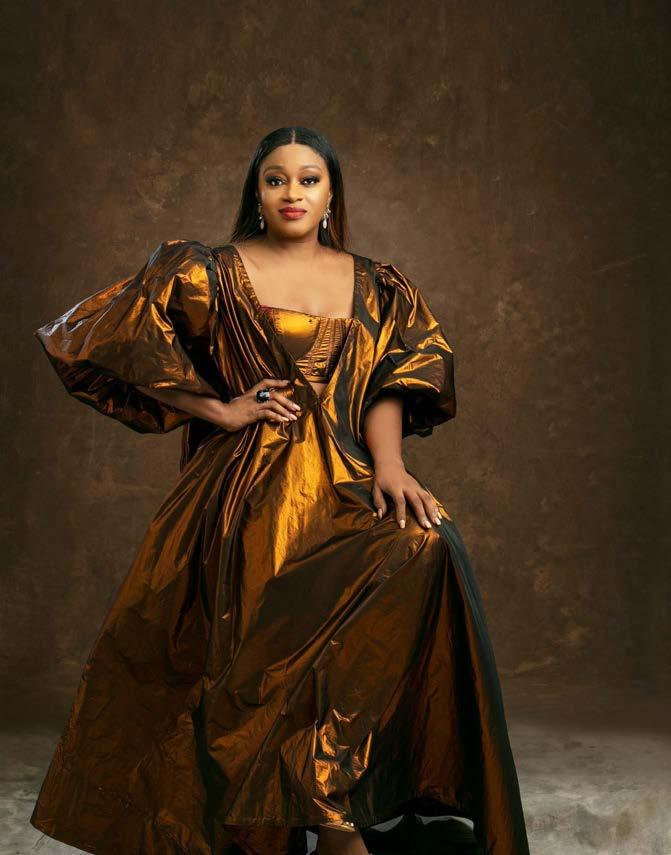
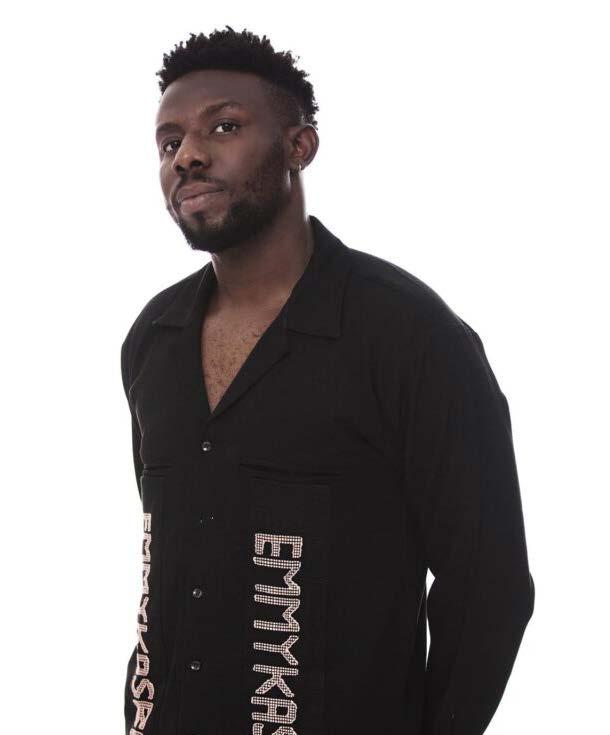
Lanre Da Silva Ajayi (LDA) is more than a designer, she’s a curator of elegance, a torchbearer of Nigerian luxury fashion. Since launching her brand in 2005, LDA has become synonymous with sophisticated couture that fuses African identity with vintage European charm. Her signature use of lace, metallic fabrics, and structured silhouettes pays homage to femininity while challenging global fashion norms.
LDA’s creations have graced runways from Lagos to New York, and featured in fashion powerhouses like Vogue Italia. Her pieces, often adorned by A-list celebrities like Tiwa Savage and Bonang Matheba, reflect the confidence and grace of the African woman. Yet, beneath the glamour is a commitment to craftsmanship and heritage. Lanre’s work reinvents traditional Nigerian textiles through a global lens, bridging cultural legacy with high-end fashion.
Through the years, LDA has grown beyond clothing to include accessories and bridal lines, making it a full-fledged fashion house. Her voice in Nigeria’s creative economy is one of consistency and grace, inspiring a new generation of women-led fashion entrepreneurs. Lanre Da Silva Ajayi is not just a name on a label, she’s a symbol of how Nigerian creativity can sit confidently on the world stage.
Since its launch in 2011, Zaron Cosmetics, founded by Oke Maduewesi, has grown from a passion project into one of Nigeria’s most influential homegrown beauty brands. Conceived during her MBA studies in Leeds and rooted in her personal and professional insights, Zaron set out to offer high-quality makeup solutions tailored specifically for women of colour.
Today, Zaron is more than lipsticks and foundations, it’s a beauty
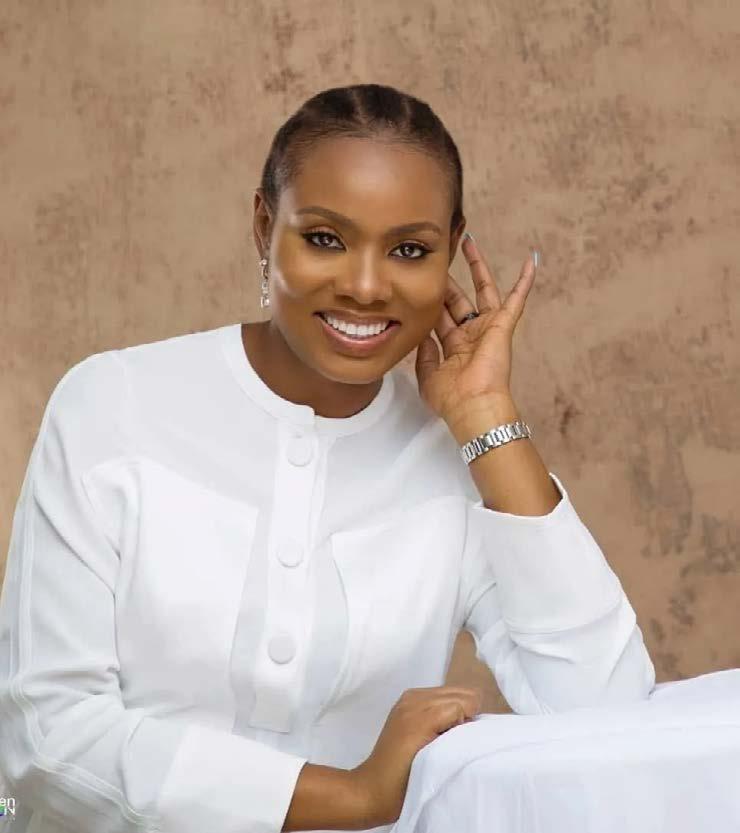
ecosystem: 25 franchise outlets, 800+ distributors, and availability in over 10 African countries, North America, and the UK. Its signature SKUs blend consumer insight with premium formulation, including SPFinfused compacts, hypoallergenic serums, and the new Skin by Zaron skincare line. The recent launch of the Vitamin C skincare range underscores its commitment to climatesmart, melaninfriendly products.
Beyond commerce, Zaron is grounded in social purpose: from its Widow’s Day to hunger relief initiatives, its ethos balances empowerment with enterprise. Zaron proves that Nigerian beauty brands can be global in reach, local in impact, and unapologetically elegant.
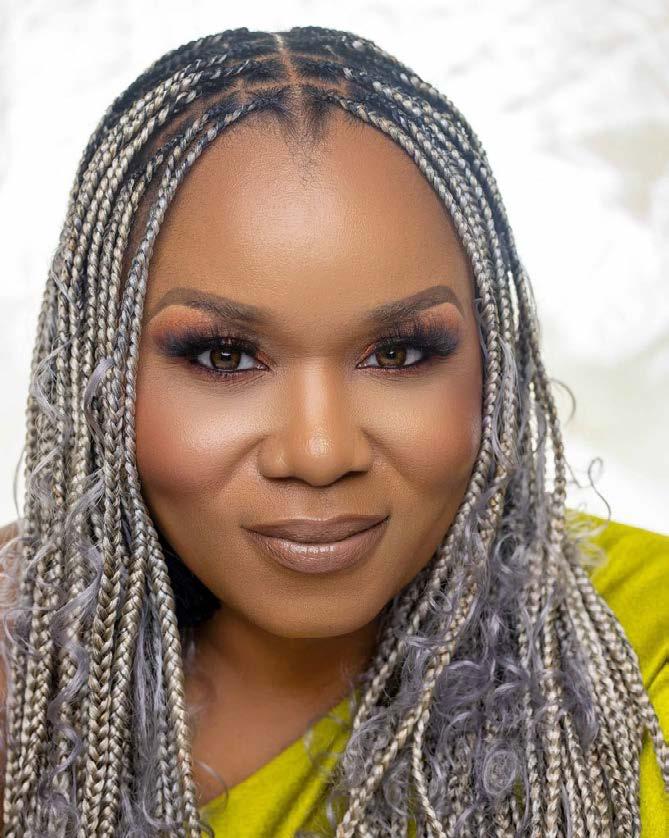
One of Nigeria’s most enduring voices in beauty, Banke Meshida Lawal built her legacy from artistry to enterprise. Born in Ife in 1978 and with an English degree from the University of Lagos, Banke began her journey in makeup while still in school, eventually founding BMPro Makeup Group, now a benchmark in the Nigerian bridal and glam industry. From winning MakeUp Artist of the Year awards (City People, ELOY, FAB) to building a brand synonymous with quality, Banke’s influence extends beyond brushes and palettes. While her artistry has made countless African brides shine, her entrepreneurial journey has empowered a generation of Nigerian makeup artists. Her brand continues to set standards in bridal glam, runway makeup, and highend consultations. Banke exemplifies the beauty of legacy: craftsmanship honed, skills scaled, and a homegrown brand that’s become a national treasure in the world of aesthetics.
Chioma Ikokwu, popularly known as Chioma GoodHair, is a lawyer, entrepreneur, and influential style icon. Born on June 25, 1989, in Lagos, she holds an LL.B from the University of Birmingham and an LL.M (distinction) in Environmental Law and International Arbitration from the University of London, before being called to the Nigerian Bar in 2013.
At just 18, Chioma Co-founded Good Hair Ltd in the UK with university friend Kika Osunde (aka Kika GoodHair), launching premium hair extensions in 2009 and later relocating to Lagos in 2014. She also co-owns Brass & Copper, a lifestyle restaurant and lounge within the space.
Beyond her beauty and hospitality ventures, Chioma is a renowned motivational speaker and coach, empowering female founders and offering executive mentorship through initiatives like Fund My Startup. Through her Good Way Foundation, she champions health causes, funding breast and cervical cancer screenings, especially within underserved communities.
Also, a reality TV personality on The Real Housewives of Lagos, Chioma merges authenticity, philanthropy, and entrepreneurship. Her journey exemplifies how talent and tenacity can build.
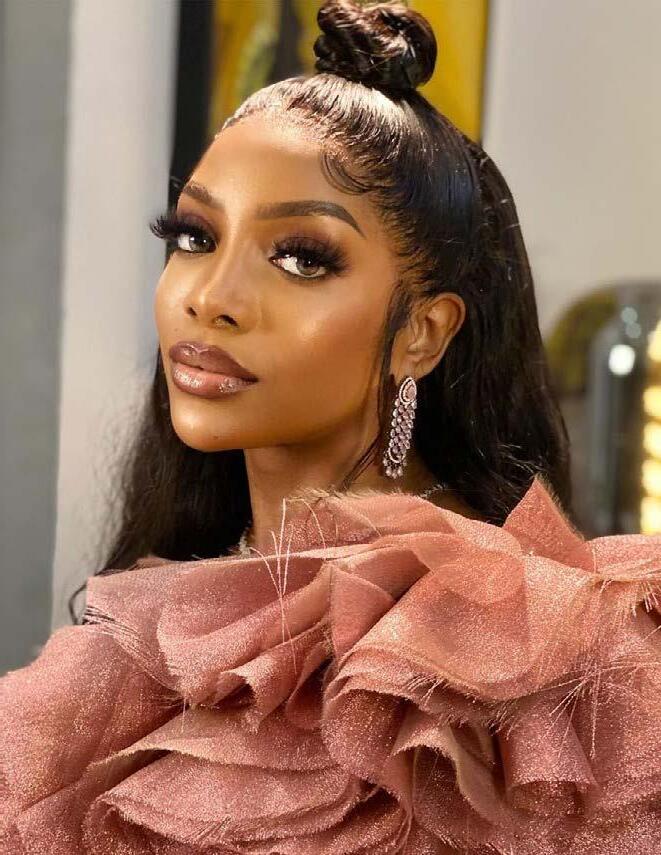
BY DORCAS AKINTOYE
We often hear about antioxidants when it comes to skincare and healthy eating, but did you know they can do wonders for your hair, too? Just like your skin, your hair is exposed to pollution, sunlight, heat, and harsh chemicals that can weaken it over time. This damage leads to dryness, breakage, hair thinning, and even early greying. Antioxidants help fight this damage by protecting the hair and scalp from harmful free radicals. In this article, we’ll talk about powerful antioxidants that are great for your hair and explain exactly how to use them. Whether you’re dealing with hair breakage, dullness, or just want to grow stronger, healthier hair, these antioxidants will come in handy.

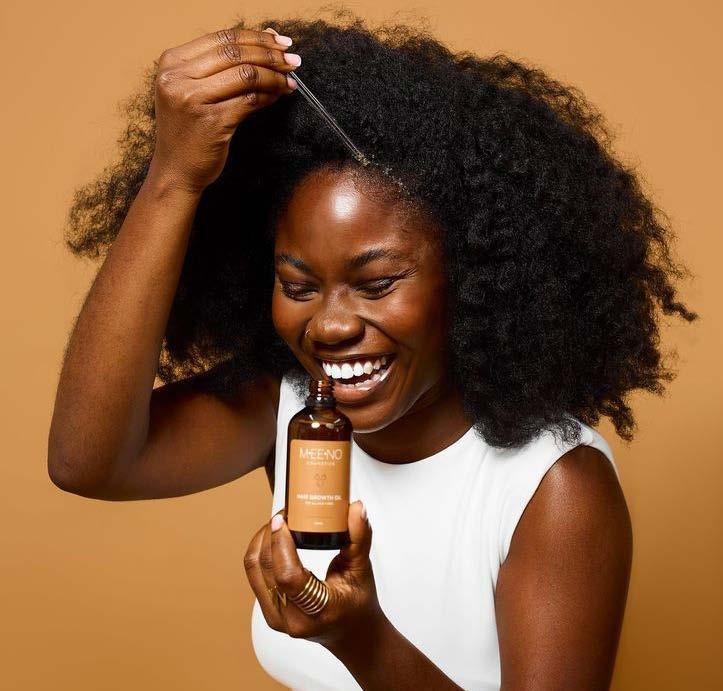
There’s a reason vitamin E is referred to as the “beauty vitamin.” It promotes hair growth by improving blood circulation in the scalp. Additionally, it gives your hair a natural sheen and shields your hair follicles from harm. Vitamin E oil can be applied straight to the scalp. Warm a few drops between your palms and gently rub them into your scalp. After 30 minutes (or overnight, if you’d like), remove it with a gentle shampoo. You can take vitamin E capsules or eat foods rich in vitamin E, such as avocados, spinach, and almonds. However, before taking any supplements, it is recommended to consult your doctor.
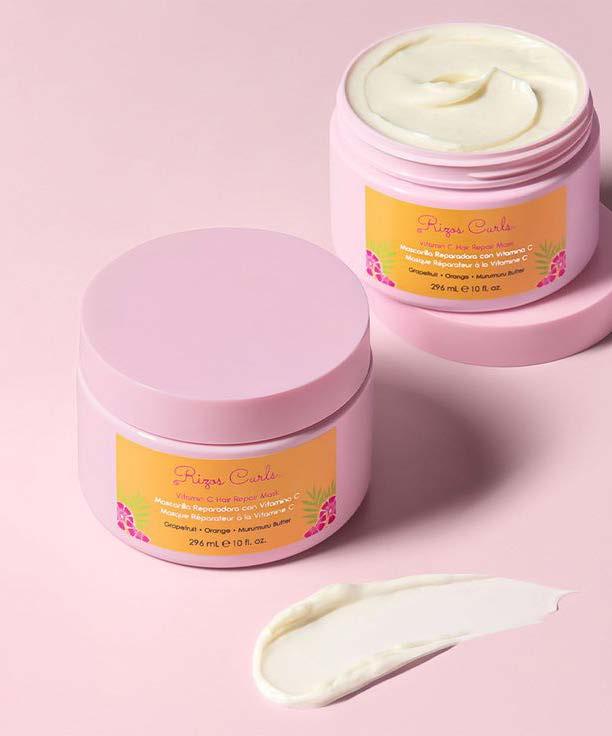
Collagen, a crucial component of hair structure, can be greatly increased by vitamin C. Additionally, it helps your body absorb iron, which is necessary for healthy hair growth and keeps hair from becoming brittle. By combining a small amount of vitamin C powder (or crushed vitamin C pills) with your usual conditioner or a carrier oil, such as coconut oil, you can create a basic hair mask. Before washing it off, apply the product to your hair and let it sit for 20-30 minutes. Consume vitamin C-rich foods, such as oranges, strawberries, and guava, daily for improved outcomes.

EGCG (epigallocatechin gallate) is one of the several antioxidants found in green tea. Through its ability to suppress the hormone DHT, which is responsible for hair loss, this antioxidant helps prevent hair fall. Additionally, it strengthens roots and promotes healthy scalps. After shampooing, rinse your hair one last time with a mixture of one or two green tea bags brewed in hot water and let to cool. Additionally, you can put it in a spray bottle and apply it to your scalp once a day. Drinking green tea regularly also helps from the inside out.

CoQ10 helps provide energy to your hair follicles, keeping them active and strong. As we age, the levels of CoQ10 in our bodies decrease, which can slow down hair growth and weaken hair. Look for hair products (shampoos or serums) that contain CoQ10. You can also take CoQ10 supplements, but again, it’s best to check with your doctor first. Some people also use CoQ10-enriched oils to massage into their scalp for an extra boost.
One of the simplest ways to protect your hair from harm and promote healthy growth is to incorporate antioxidants into your hair care routine. These antioxidants can give your hair the health, strength, and shine it deserves, whether you apply them directly or consume foods high in them.

BY JOHNSON CHUKWUEKE
As we hit the midpoint of the year, it's natural to feel a mix of emotions. Some of us may be thrilled with the progress we've made towards our fitness goals, while others might be feeling a bit discouraged. Life gets in the way, motivation waxes and wanes, and before we know it, our workout routine has taken a backseat. But here's the thing: it's never too late to get back on track. With a few simple tweaks and mindset shifts, you can reignite your passion for fitness and power through the second half of the year. In this article, we'll explore a few simple steps to help you get back on track with your workouts. Whether you're looking to restart a stalled routine or want to boost your motivation, these tips will help you achieve your fitness goals.
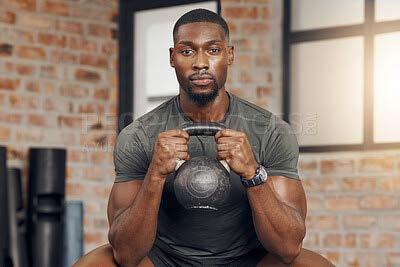
Take a step back and evaluate your fitness goals. Ask yourself: What were you hoping to achieve at the beginning of the year? Have your goals changed or shifted? What are your priorities now? Write down your goals and make them specific, measurable, achievable, relevant, and time-bound (SMART). Having clear goals in mind will help you stay focused and motivated. For example, instead of saying, "I want to get fit," try "I will exercise for 30 minutes, 3 times a week, for the next 6 months to improve my overall health and fitness." Having a clear plan will give you direction and purpose.
Let's face it: doing the same workout routine over and over can get boring. If you're feeling stagnant, it's time to mix things up. Try new activities, join a fitness class, or work out with a friend. Exercise shouldn't be a chore; it should be something you look forward to.
Experiment with different types of workouts, such as yoga, Pilates, swimming, or dancing. You might be surprised at how much you enjoy something new. When you find activities that bring you joy, you'll be more likely to stick to your routine.

One of the main reasons people struggle to stick to a workout routine is a lack of time. However, the truth is that we all have time; we just need to prioritise our fitness goals. Create a schedule that works for you and stick to it. Whether it's early morning workouts, lunch breaks, or evening sessions, make sure to allocate time for exercise.
Consider your lifestyle and preferences when creating your schedule. If you're not a morning person, don't try to wake up at 5 am for a workout. Instead, find a time that suits you and stick to it.
Consistency is key to developing a habit.
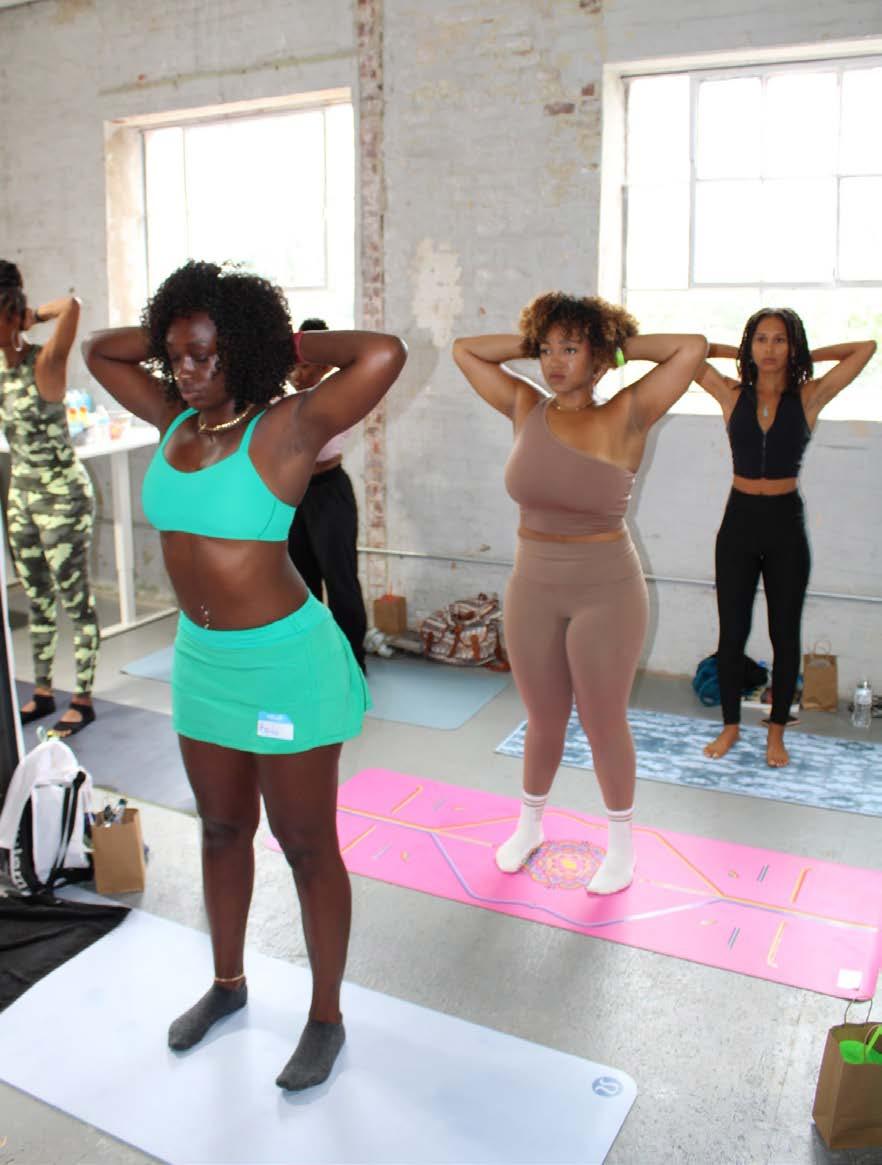

Tracking your progress is a great way to stay motivated. Use a fitness tracker, log your workouts, or take progress photos. Seeing how far you've come can be a powerful motivator. Celebrate your small wins, no matter how insignificant they may seem. Did you complete a challenging workout? Treat yourself to a post-workout smoothie or a relaxing bath. Acknowledging your achievements will help you stay positive and encouraged.
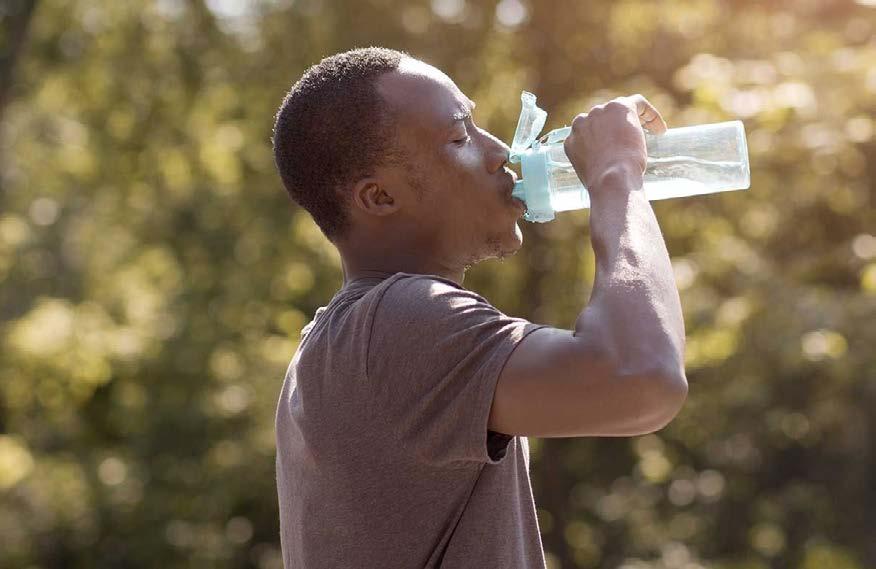
Having a support system can make all the difference in your fitness journey. Share your goals with a friend or family member and ask them to hold you accountable. Join a fitness community or find a workout buddy. Having someone to report to and share your progress with can be a great motivator. You can also seek support from fitness professionals, such as personal trainers or fitness coaches. They can provide guidance, support, and motivation to help you achieve your goals.
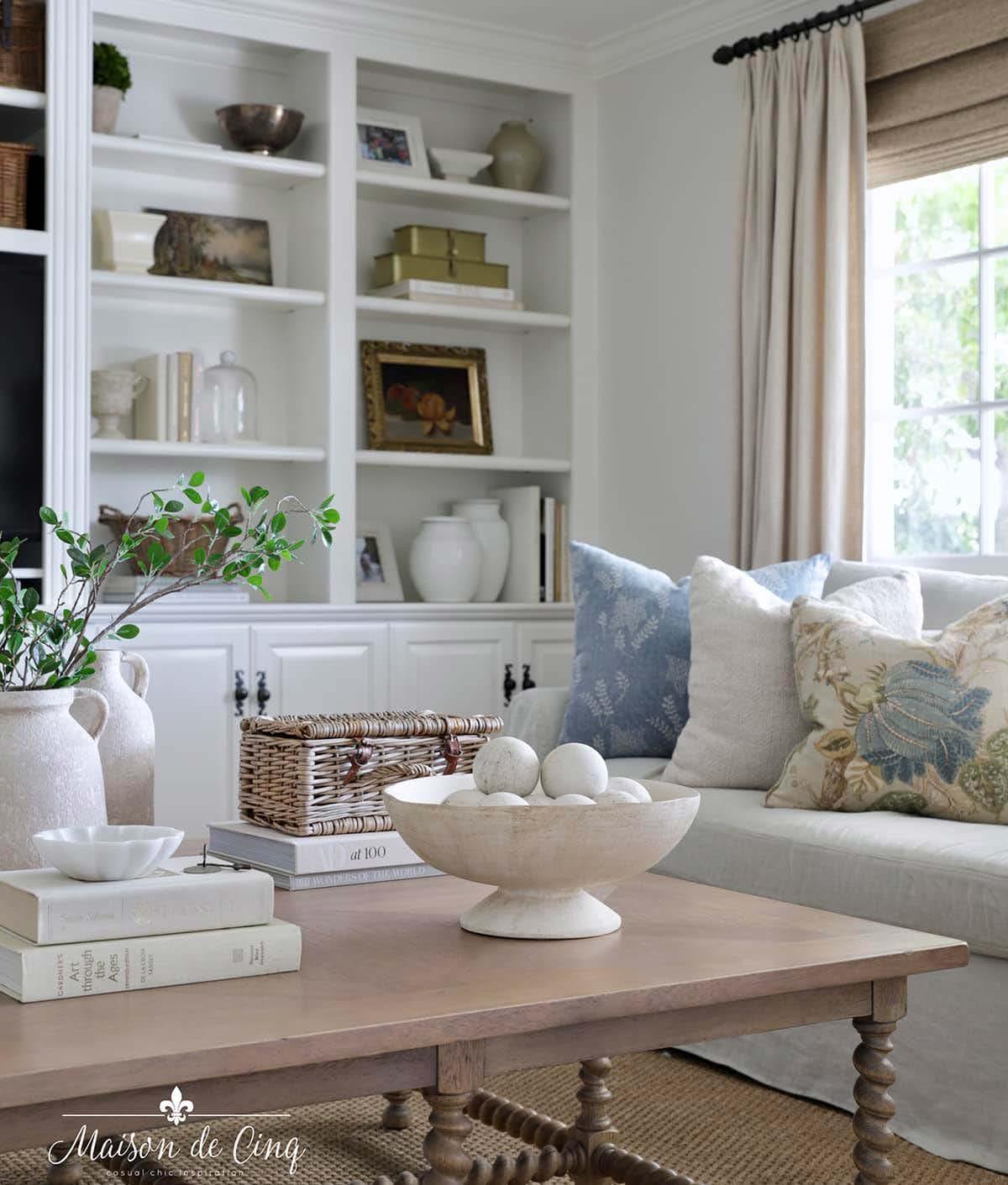
BY JOHNSON CHUKWUEKE
When the heat turns up, so should your decor. Summer is the perfect excuse to swap out the heavy tones and moody vibes for something breezier, lighter, and a lot more fun. Whether you’re in a cosy Lagos apartment, a suburban home in Abuja, or a sun-drenched villa along the coast, a summer glow-up can instantly transform your space. And no, you don’t have to break the bank or knock down walls; just a few clever tweaks and playful design choices can brighten things up beautifully.
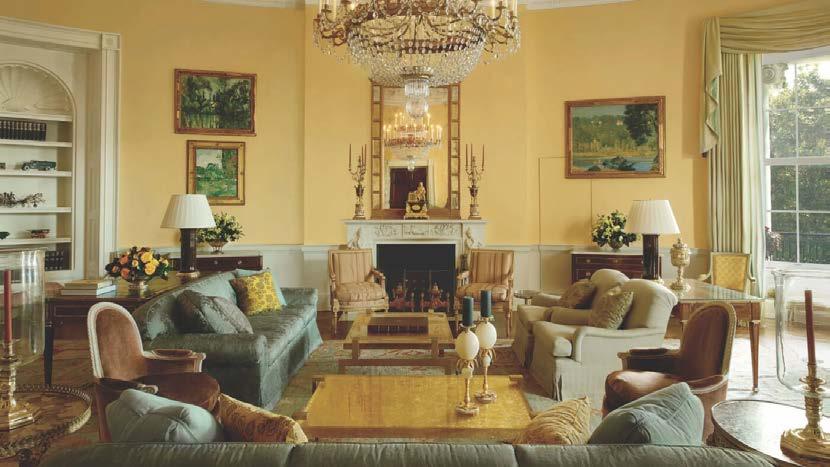
Colours like lemon yellow, coral, aqua blue, and mint green scream summer. Swap out neutral pillow covers, throws, and curtains for these sun-kissed tones. Even a few new cushion covers in a bright pattern can change the energy of a room. Think palm prints, tropical florals, or even watermelon-inspired designs. They’re playful, youthful, and totally in season.

Let The Light In, Literally
Summer is all about that natural glow. Maximise sunlight by using sheer curtains or ditching them altogether in smaller rooms. Clean your windows, add mirrors to reflect light around the room, and position furniture to take full advantage of sunlight. Bonus points if your furniture pieces are made of glass, light wood, or woven materials, as they naturally reflect brightness.
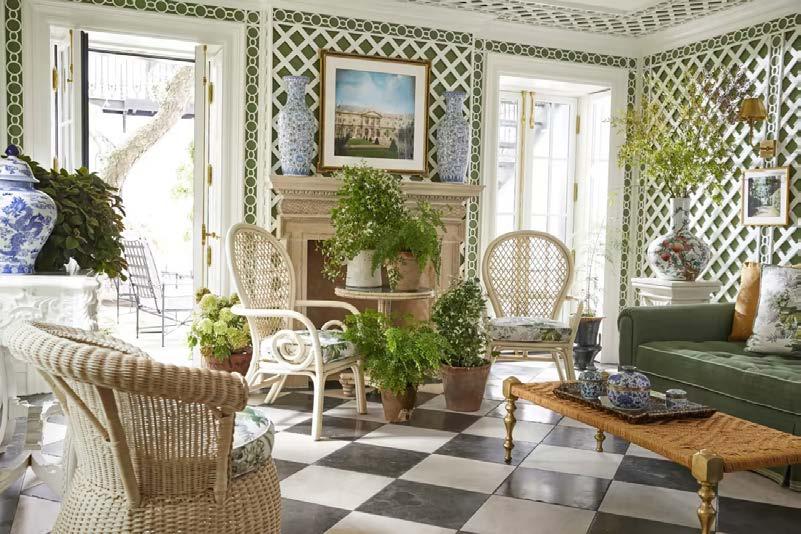
Nothing says summer like a house that feels like an indoor garden. Consider adding potted plants like snake plants, ferns, or succulents that thrive indoors. For a tropical edge, go bold with a monstera or a bird-ofparadise. Not into plant parenting? Opt for faux florals in sunny colours like orange, lilac, or blush pink. Pop them in quirky vases or mason jars to keep the aesthetic fun and fresh.

Summer-ize Your Wall Art
Swap your moody framed prints for bright, abstract art, travel posters, or even DIY art made with colourful paper or fabric. Wall decals are a renter-friendly way to add a touch of whimsy. Think palm trees, shells, or ice cream cones. If you’re into photography, hang up snapshots from summer trips or create a collage that reminds you of beach days and road trips.

The secret to a summer-ready home? It’s all about capturing the carefree, fresh, and joyful vibe of the season. Play with colour, embrace natural light, add a dash of nature, and don’t be afraid to get a little playful. Whether it’s through prints, textures, or mood-boosting accents, these changes can instantly turn your space from stuffy to sunshine-ready. So go ahead, lighten up. Your home (and mood) will thank you. Think Seasonal Textures
Put away the heavy velvets and faux furs; summer calls for breezy textures like linen, cotton, rattan, and jute. Replace your bedspread with something lighter, or add a breathable linen cover to your couch. Add a jute rug underfoot for a beachy, earthy feel. Even baskets made of raffia or cane can serve as chic storage while staying on theme.


Iwasn’t even supposed to go out that night.
It was one of those Fridays when I just wanted to curl up and scroll aimlessly on my phone. But my best friend, Kemi, wouldn’t let me breathe. “Abeg, wear something short and follow me. This life is one,” she said, dragging me off my bed.
And just like that, I found myself in a dimly lit club on the Island, music vibrating through the floor and people moving like they had no worries. I wore a black mini dress that clung to my body like second skin. It wasn’t my plan to turn heads, but the moment we walked in, I noticed him watching me from across the room.
Tall. Clean. That beard. That damn beard.
He looked like the kind of man who knew what he was doing, the type you shouldn’t trust but couldn’t stay away from.
He didn’t come to me immediately. He watched me dance first, sipping from a
glass, then finally made his move when I stepped out to catch my breath.
“You came alone?” he asked, standing close enough for me to catch the scent of his cologne. Something musky and expensive.
“No,” I replied, turning to face him fully. “But I could be.”
He chuckled, deep and low. “I’m Malik.”
“Amara,” I said, letting the name sit in the space between us.
He didn’t waste time. “I know this is forward, but... you’re beautiful. I’ve been watching you since you came in.”
“Good watching or creepy watching?” He smiled. “Let’s say... appreciative.”
We talked for a few more minutes, surface things. Where he worked, where I lived. But there was tension in the air, thick and teasing, like our bodies were having their own conversation beneath our words.
So when he offered to drop me off, I didn’t even blink.
His car was sleek, with a black leather interior, clean, and cool air. But it was the silence that filled the space between us that spoke the loudest.
We didn’t talk much as he drove. Our hands brushed
against each other once, and the electricity from that simple touch was ridiculous.
He parked just by the beach road, engine off, lights low.
“Do you want to kiss me, Malik?” I asked, breath catching in my throat.
He turned fully, eyes dark, voice husky. “I’ve been trying not to.” That was all it took.
His lips met mine in a kiss that was soft at first, curious, slow, tasting. But it didn’t stay soft. His hands were suddenly on my waist, pulling me onto his lap, mouth hungry, tongue bold. My hands explored his chest, his shoulders, down to his belt... Everything about him felt deliberate. The way he touched me, the way he whispered my name like it was something sacred. Our clothes didn’t come off entirely, just enough. He pushed up my dress, I pulled down his jeans, and before I could second-guess myself, we were both lost in it. In the backseat.
Windows fogged.
His hands gripped my thighs as he moved inside me like he owned me.
And God, he moved like a man who knew exactly what a woman needed.
I moaned his name over and over, hips meeting his, bodies colliding in rhythm. Every stroke, every kiss, every gasp felt like a secret we were writing on each other’s skin.
It didn’t feel like just sex. It felt like an escape; like the world stopped for a few minutes just to let us feel alive.
And when it was over, and I lay there with my head against his chest, catching my breath, all I could do was laugh softly.
“What?” he asked.
“I was just thinking... I’m really glad Kemi dragged me out.”
He grinned. “So am I.”
BY BOLUWATIFE ADESINA

The seventh film in the Jurassic Park franchise may be a boring and dispiriting slog, but it has a surprisingly coherent premise. It’s been 32 years since dinosaurs were brought back from extinction, and public interest in them has waned. Kids aren’t visiting dinosaur exhibits any more, palaeontologists are out of work, and the few dinos that remain are dying of diseases in a climate that doesn’t suit them.
The savvy pharmaceutical executive Martin Krebs (Rupert Friend), however, believes that dinosaurs could still be put to use. He recruits Zora Bennett (Scarlett Johansson), a gun for hire who does rough jobs for whoever pays well, to venture to an island near the equator, where a number of remaining dinosaurs have been dumped. Zora’s job — with the help of palaeontologist Dr Henry Loomis (Jonathan Bailey) — is to find the three biggest dinosaurs on the island and get a sample of their blood while they’re still alive. The hope is that the creatures’ DNA will unlock a cure for heart disease. Why these three dinosaur species in particular? They have huge hearts and live for a long time duh; it’s called science.
Soon enough, the journey to the island hits a snag when the expedition leader, Duncan Kincaid (Mahershala Ali), intercepts a mayday signal from a sailing boat that is sinking nearby. As luck would have it, the culprit is one of the very dinosaurs the team is seeking, a vast seadwelling leviathan with dreadful teeth and a lust for human flesh.
It would be eccentric to watch Jurassic World Rebirth expecting originality; it’s almost funny how predictable the beats of the story are. Minor characters are given just enough personality to register — then are fed, with grim inevitability, to the dinosaurs that wait behind every tree. As I watched these poor up-andcoming actors being gobbled and mauled, I found myself fantasising about another film, the dark side of this one’s moon, in which the assembled stars —Johansson, Ali, Friend and Bailey — are unceremoniously stomped on and the rest of the story is given over to the nonplayable characters.
The screenplay was written by David
Koepp, who cowrote the 1993 Jurassic Park adaptation with Michael Crichton, and at points the characters act in ways they did in the original. When our righteous palaeontologist sees a dinosaur in the wild for the first time, for instance, he cries: “Ahhhh!
It’s beautiful!” Later, the gang encounters a lovely herd of vegetarian dinos, and the pace of the film slows as the camera takes in their curved necks, their graceful tails, and the loving way they tend to one another.
The trouble is, the 1990s energy Rebirth is trying to channel feels fake. Bailey does a perfectly good job of pretending to be struck with awe by the sight of the dinosaurs, but he’s such a thinly drawn character you don’t care that he’s having an epiphany. If what you want is a 1990s blockbuster with 1990s energy, you’d be better off watching a 1990s blockbuster. The film also has a size issue. Bennett and Co. may be looking for the biggest dinosaurs on the planet, but even so, they are ridiculously, impossibly big.
The largest animal ever to have lived is the blue whale – larger even than a megalodon, the prehistoric shark. Yet these dinosaurs are thundering Godzillas that would make a blue whale look petite.
In the logic of the franchise, of course, this makes sense. To win back an audience, every film must deliver a bigger, badder foe. Seven films in, the dinosaur inflation has reached such a scale that the creatures feel silly and fantastical, not extinct animals brought back to life. And when the main characters escape them again and again, their good fortune begins to ring hollow.
Hardcore Jurassic Park fans may yet get something out of this film. It does tick some of the essential boxes: dinosaurs, dread, Jeeps. There are jokes that drew laughs from the audience (though many others were punished with silence). Friend has been underused by Hollywood for years, so it’s nice to find him here. Ali brings his usual laid-back warmth; Johansson makes an effort. But really, this is a disposable film that makes you feel stupider and sadder the longer it goes on; not the worst film ever made, but definitely one of the more demoralising ones.

Rating: 5.5/10

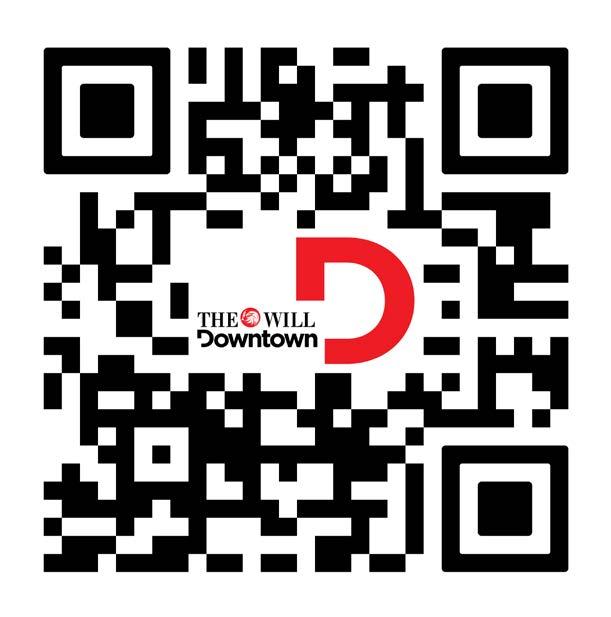
The second series of Netflix’s adaptation of cult graphic novel The Sandman is a brilliantly surreal, escapist fantasy that has all the makings of a substantial hit –or at least it would if its creator, Neil Gaiman, hadn’t been cancelled last year.
He has rejected the allegations, saying he “never engaged in non-consensual sexual activity with anyone”. Yet, despite those denials, his career is effectively over. And with it, The Sandman, which Netflix is bringing to a premature close after a truncated two seasons.
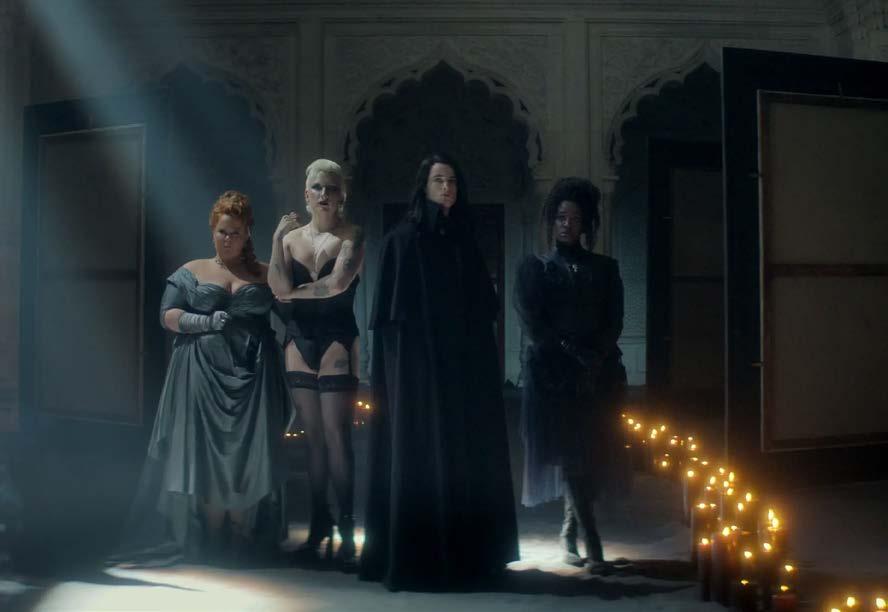
of Thrones
In terms of damage limitation, the decision is a no-brainer. That said, this fantastically unconventional and sumptuously crafted show surely deserves better, with just two (and a bit) of the 10 original graphic novels adapted.
The story picks up the tale of Morpheus, also known as Dream — played with sublime solemnity by Tom Sturridge. He is one of the family of “Endless” who embody various elements of the human experience. The Sandman has already introduced Mason Alexander Park as Desire and Kirby HowellBaptiste as Death (a fan favourite, in part inspired by Gaiman’s friend, singer Tori Amos).
This time, Morpheus catches up with Delirium (a brilliantly brittle Esmé Creed-Miles, daughter of Samantha Morton) and the mysterious black sheep of the clan (Barry Sloane).
Jenna Coleman is back, too, as Joanna Constantine — a paranormal investigator from Elizabethan England.
Ruairi O’Connor, meanwhile, has a small but crucial part as a close relative of Morpheus with a tendency to lose his head. There are also fun cameos by Steve Coogan, Freddie Fox,
Goyer — and Gaiman, to the extent he was involved — have done a great job of transposing to the screen the stream-of-consciousness tone of the comic books (as per Netflix’s custom, the season is divided into two).
Taking a sort of free-jazz approach to storytelling, The Sandman graphic novels don’t have a plot so much as a vibe. In a fitting reflection of the subject matter, they follow a charming dream logic as Morpheus travels
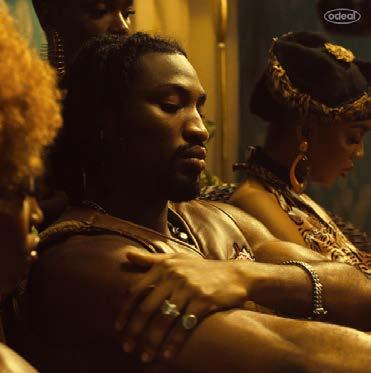
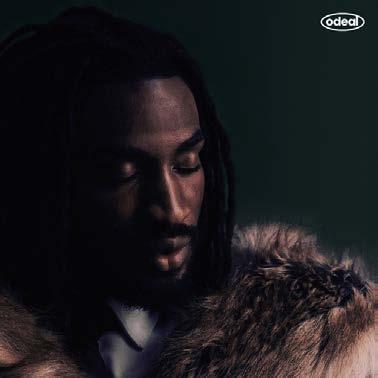
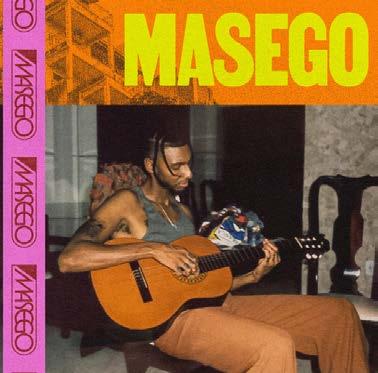
the cosmos, embarking on many unusual adventures. These include a run-in with Shakespeare (it turns out Morpheus inspired A Midsummer Night’s Dream) and an awkward encounter with a bored Lucifer (Gwendoline Christie).
The Sandman isn’t for everyone. This is hardcore geek material — portentous, pretentious and not big on humour. However, even people who like this kind of thing may be conflicted, given the backlash against Gaiman. Though wonderfully made and acted, the allegations against the show’s creator have robbed The Sandman of a great deal of its lustre. It’s a shame the adaptation is over almost before it began. But for Netflix, you suspect this dreamy tale has become a waking nightmare that can’t end too soon.
